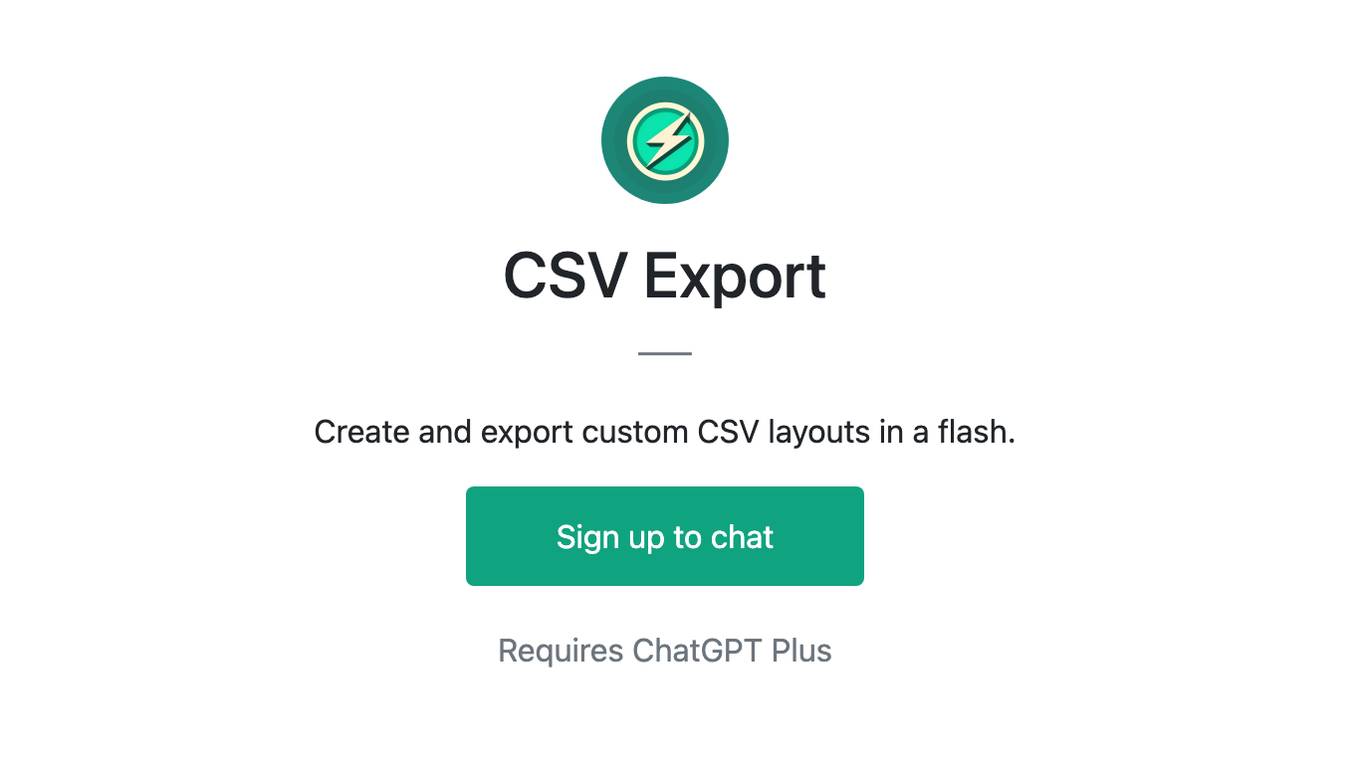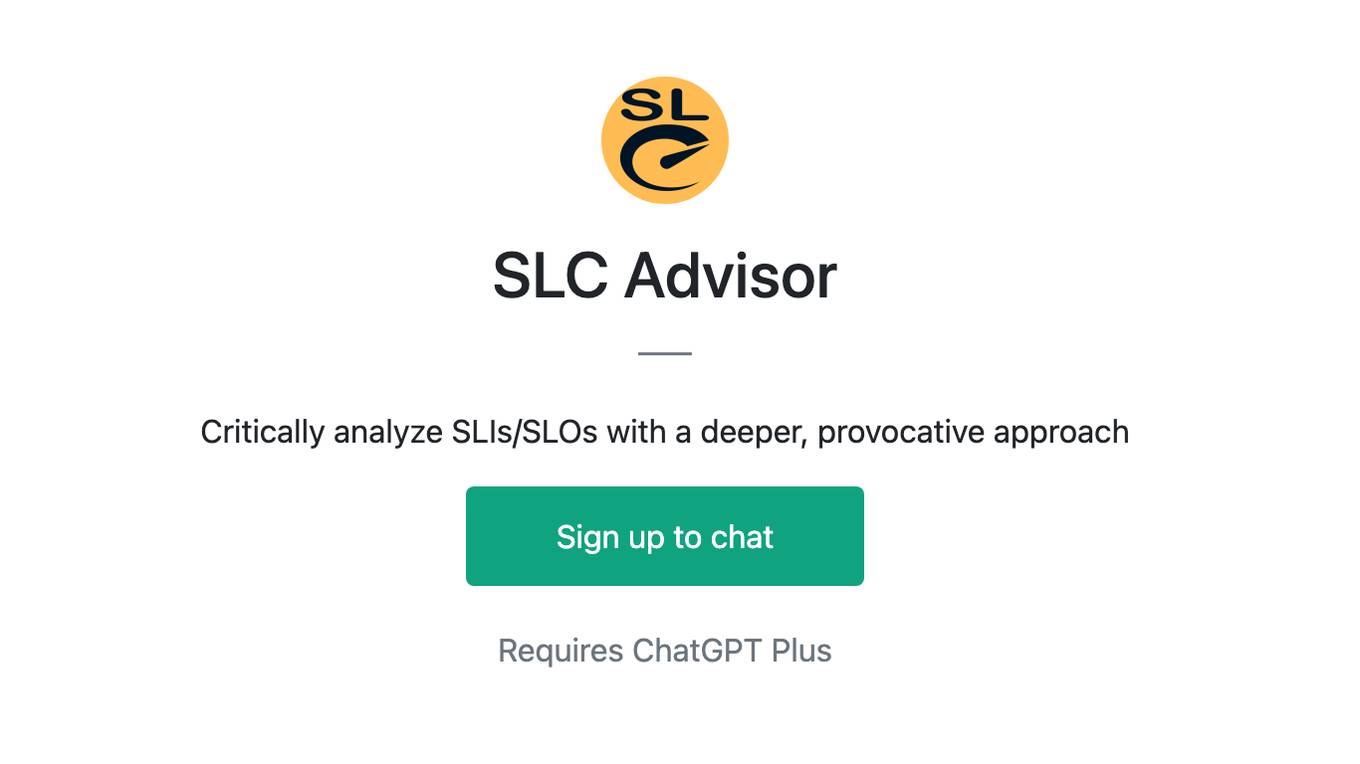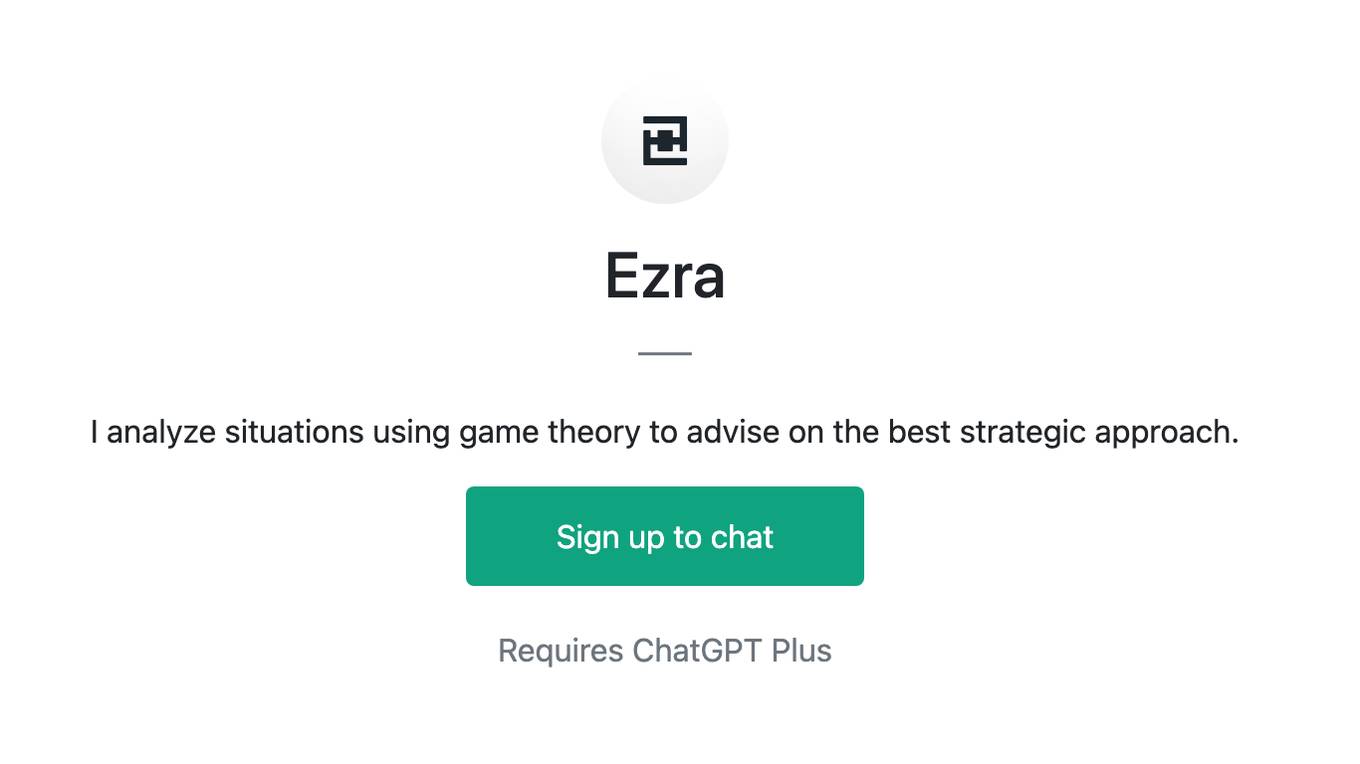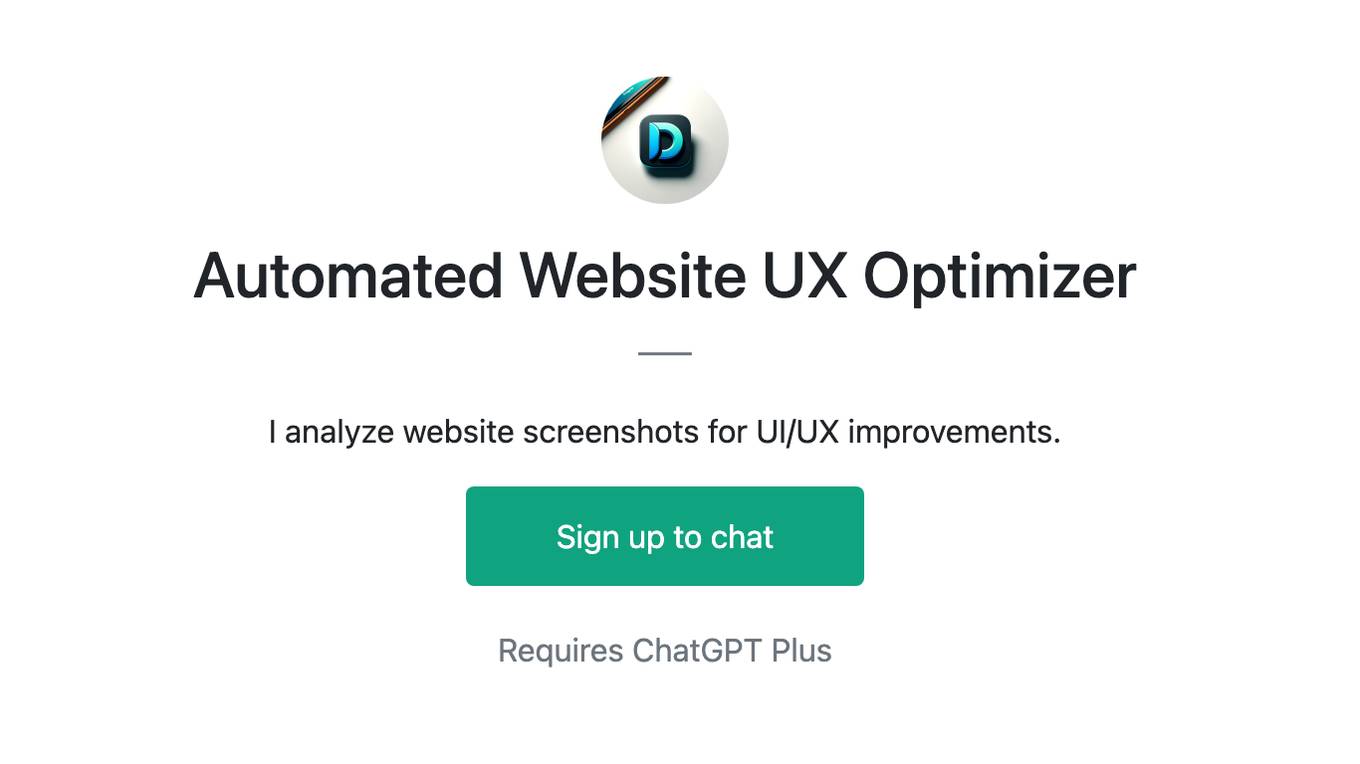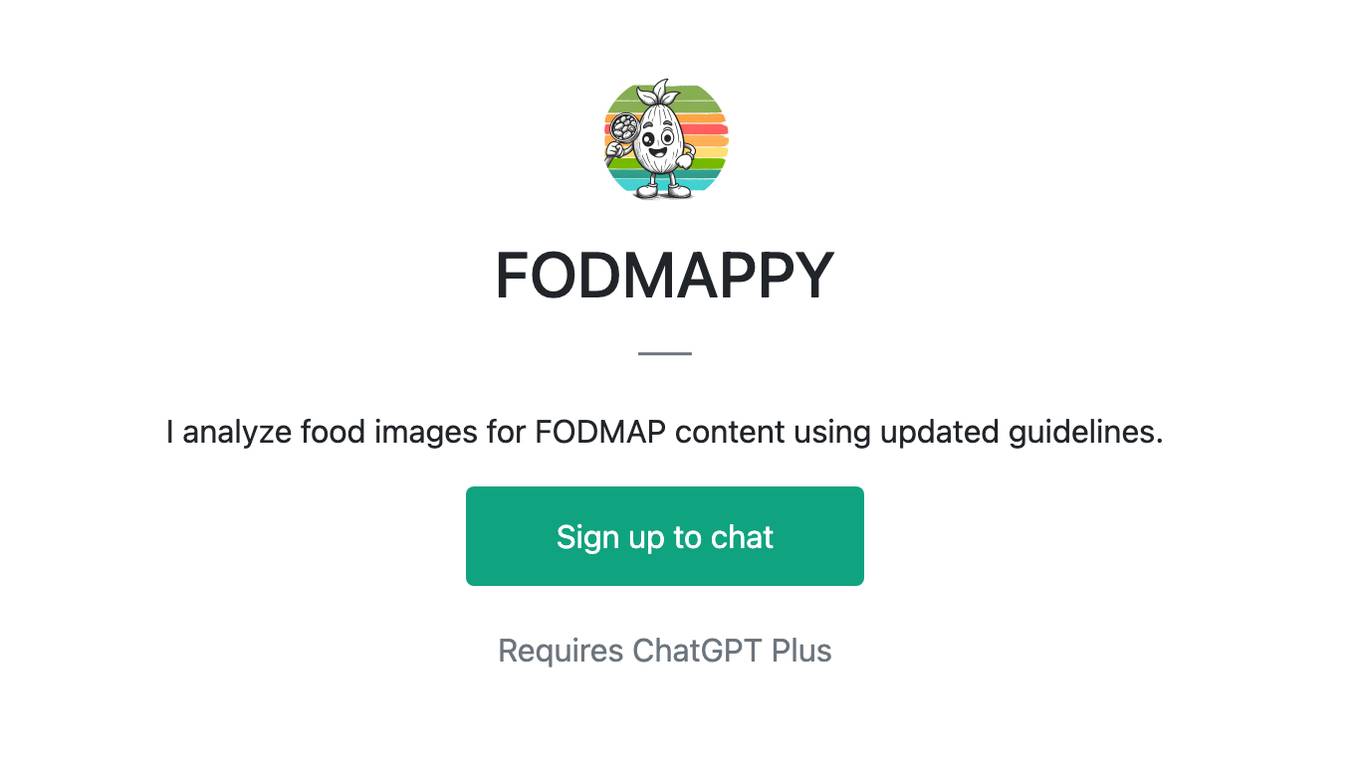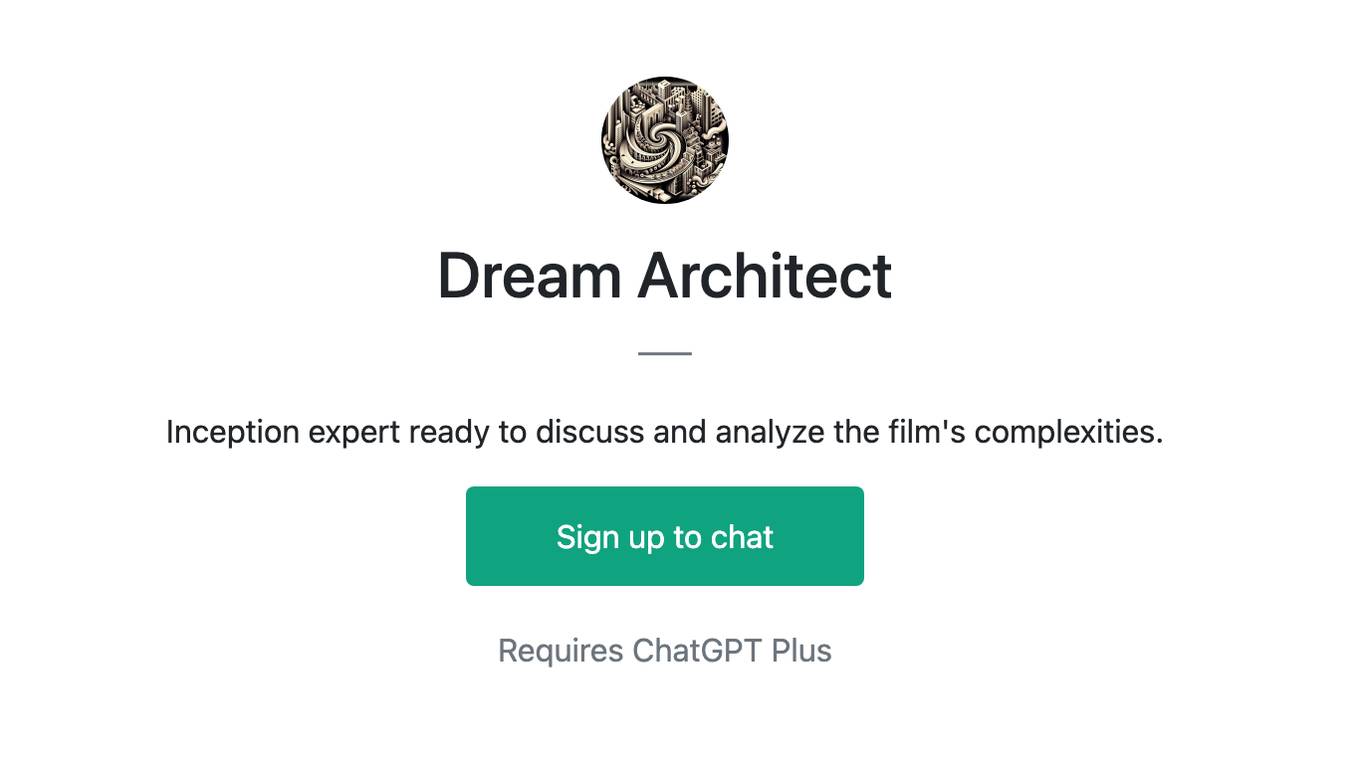Best AI tools for< Analyze Layout >
20 - AI tool Sites
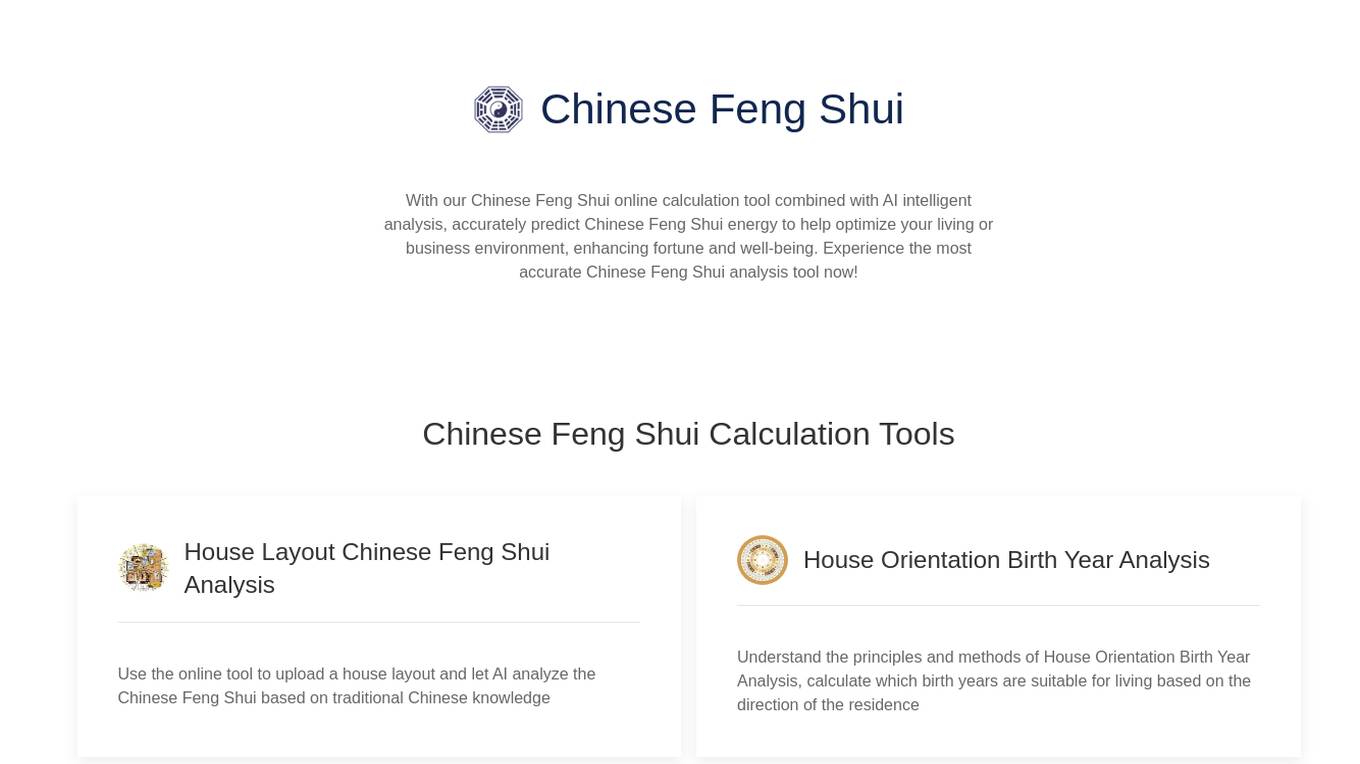
Chinese Feng Shui Online Calculation Tool
Chinese Feng Shui online calculation tool combined with AI intelligent analysis to accurately predict Chinese Feng Shui energy and optimize living or business environments, enhancing fortune and well-being.

AI Manga Translate
AI Manga Translate is an AI-powered manga translation tool that offers fast, accurate, and multilingual OCR services. It allows users to understand the original manga content in seconds and translates it into various languages while preserving context and layout. The tool supports over 50 languages with a high translation accuracy rate. Users can upload images or PDFs, choose the target language and model, and review/download the translated content easily. AI Manga Translate provides a full-stack AIGC solution for manga translation, combining offline and cloud language models to ensure high-fidelity output and controllable layout.
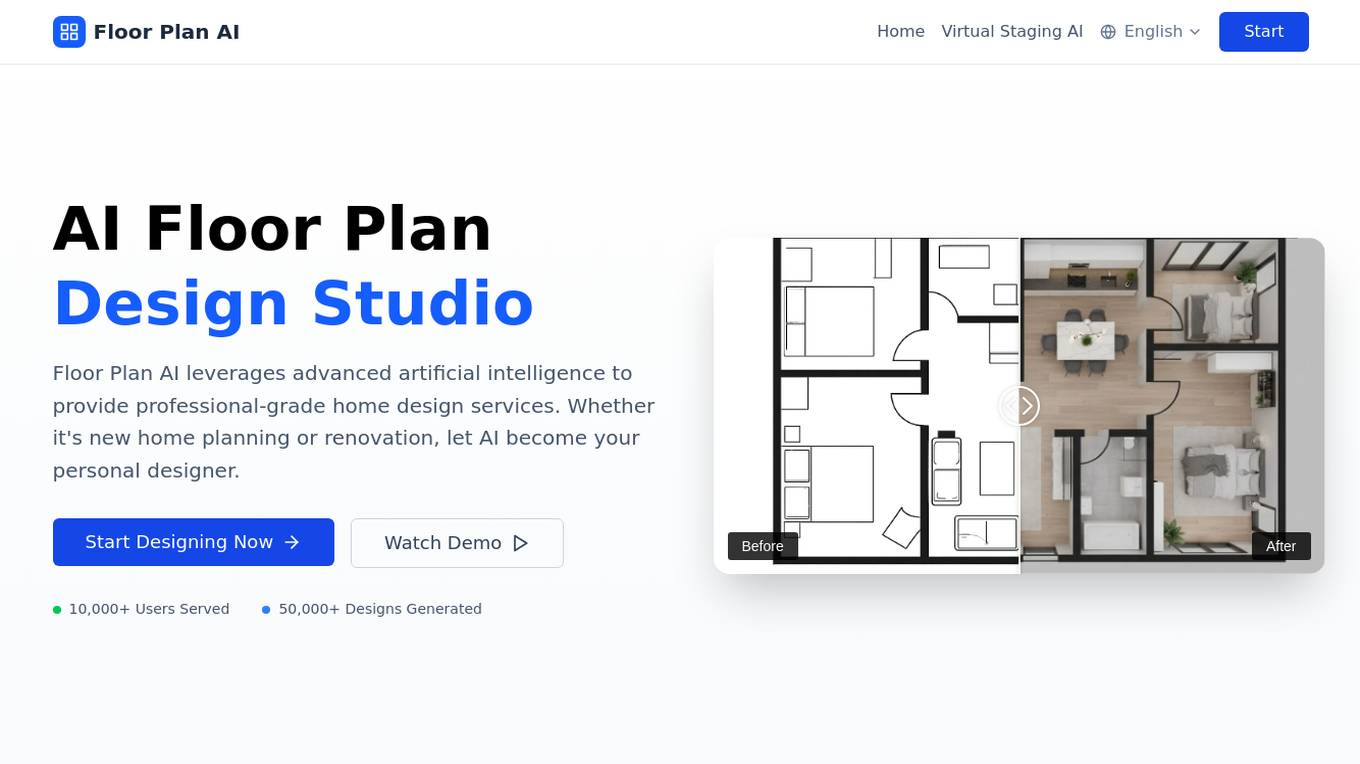
Floor-Plan.ai
Floor-Plan.ai is an AI-powered online platform that offers professional-grade home design services using advanced artificial intelligence technology. It allows users to create floor plans for new home planning or renovation projects with the help of innovative AI design modes. The platform leverages powerful algorithms to analyze spatial relationships and user preferences, ensuring personalized and high-quality floor plan solutions. With features like lightning-fast generation, multi-user collaboration support, and cross-platform compatibility, Floor-Plan.ai revolutionizes the home design experience.

VisualHUB
VisualHUB is an AI-powered design analysis tool that provides instant insights on UI, UX, readability, and more. It offers features like A/B Testing, UI Analysis, UX Analysis, Readability Analysis, Margin and Hierarchy Analysis, and Competition Analysis. Users can upload product images to receive detailed reports with actionable insights and scores. Trusted by founders and designers, VisualHUB helps optimize design variations and identify areas for improvement in products.
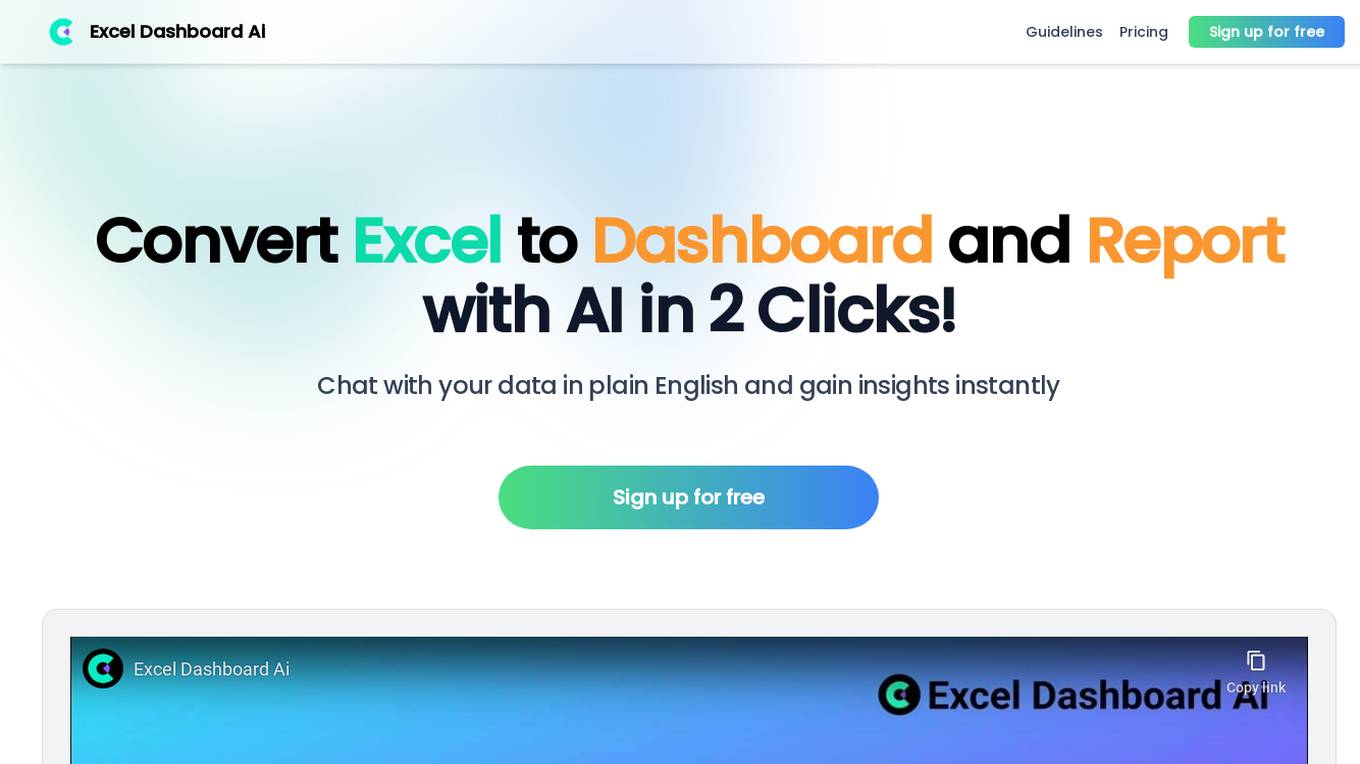
ExcelDashboard Ai
ExcelDashboard Ai is an AI tool that allows users to instantly convert Excel data into interactive dashboards. The tool simplifies the process of creating visually appealing and insightful dashboards without the need for complex coding or design skills. Users can easily upload their Excel files, customize the dashboard layout, and visualize data in a user-friendly format. ExcelDashboard Ai streamlines the dashboard creation process, saving time and effort for individuals and businesses looking to present data in a more engaging way.
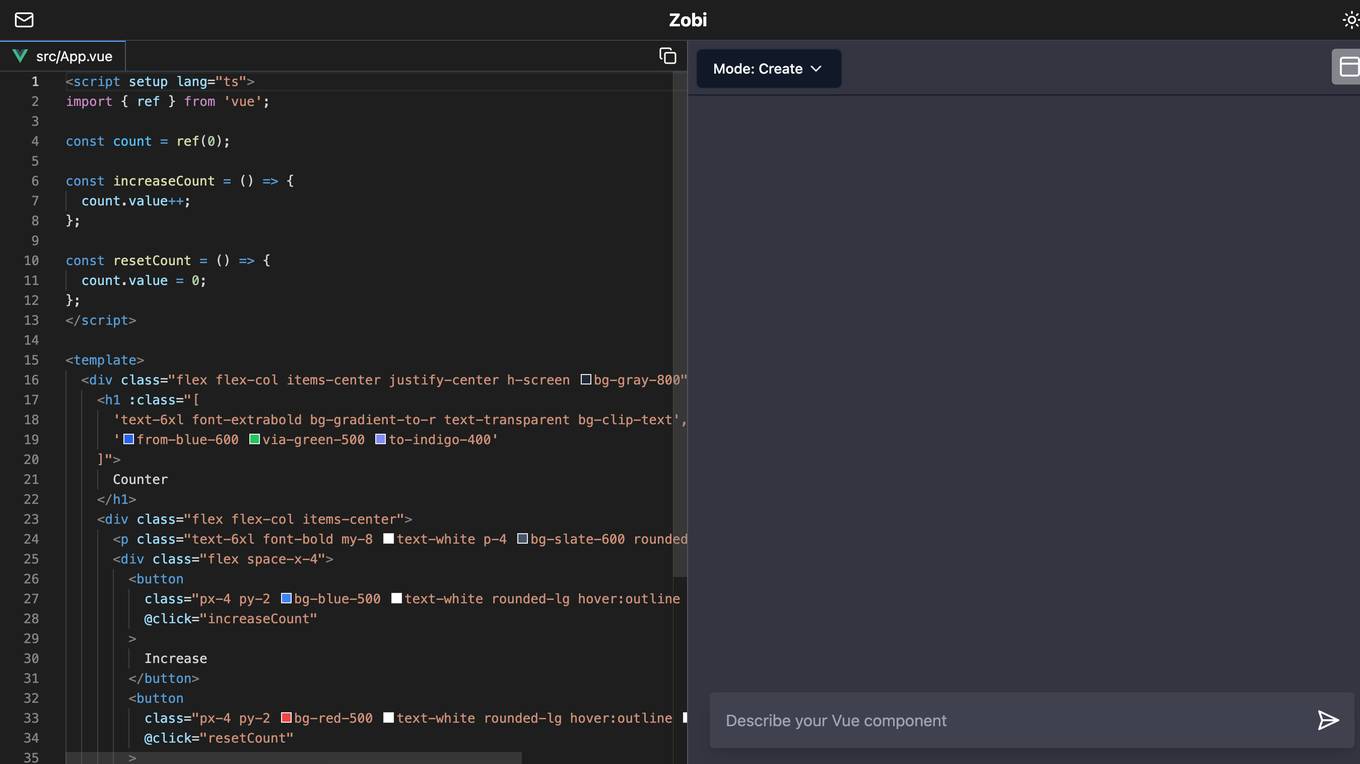
Zobi
The website Zobi is a web application that allows users to create a counter mode. Users can increment and reset the count using the provided functions. The interface is designed with a modern and user-friendly layout, making it easy for users to interact with the application.
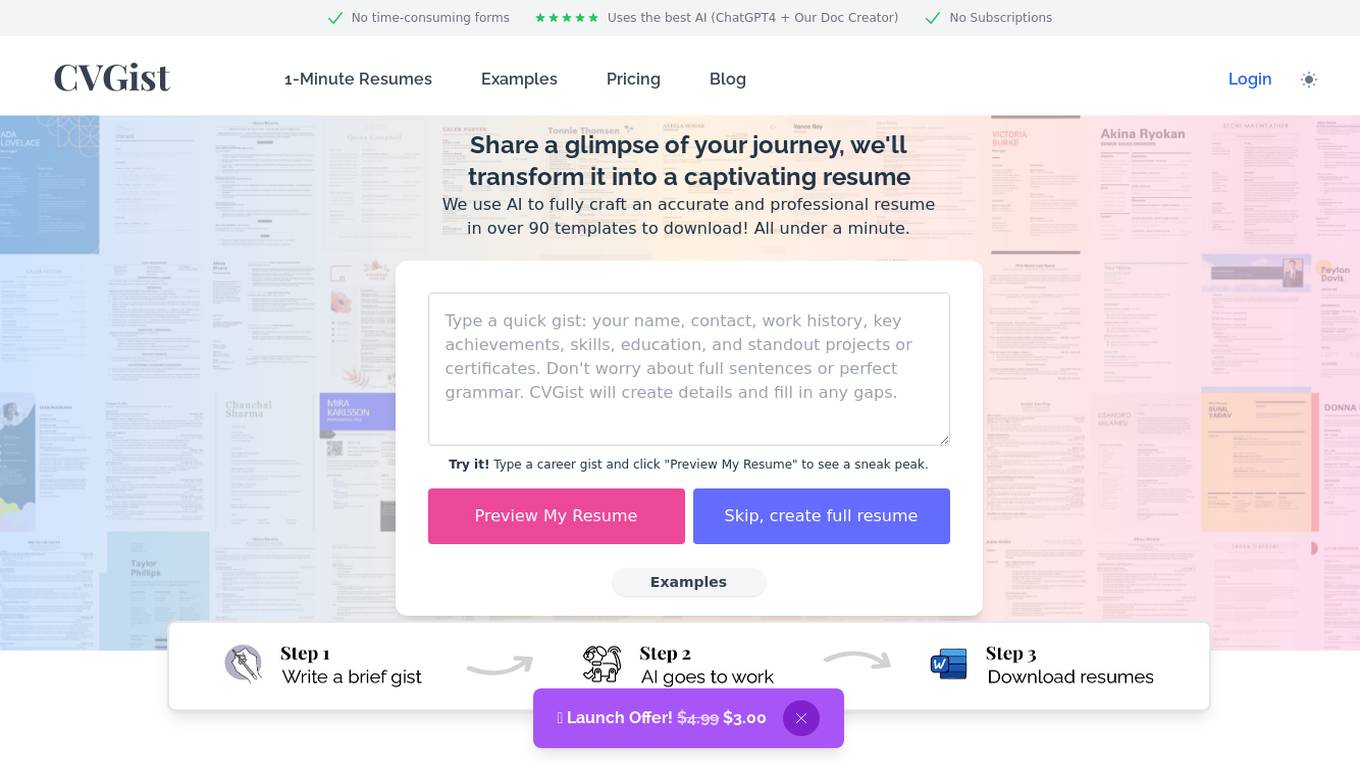
CVGist
CVGist is an AI-powered resume builder that enables users to create professional resumes in just 1 minute. The platform utilizes artificial intelligence to analyze and optimize resume content, layout, and design, helping individuals craft impactful resumes that stand out to potential employers. With CVGist, users can easily input their information, select a template, and generate a polished resume tailored to their needs and industry standards.

Product Hero
Product Hero is an e-commerce tool that helps businesses create personalized banners for their websites and emails. It uses AI to analyze product images and create layouts that are relevant to each customer. Product Hero also integrates with existing recommendation engines to ensure that the most relevant products are displayed to each customer.
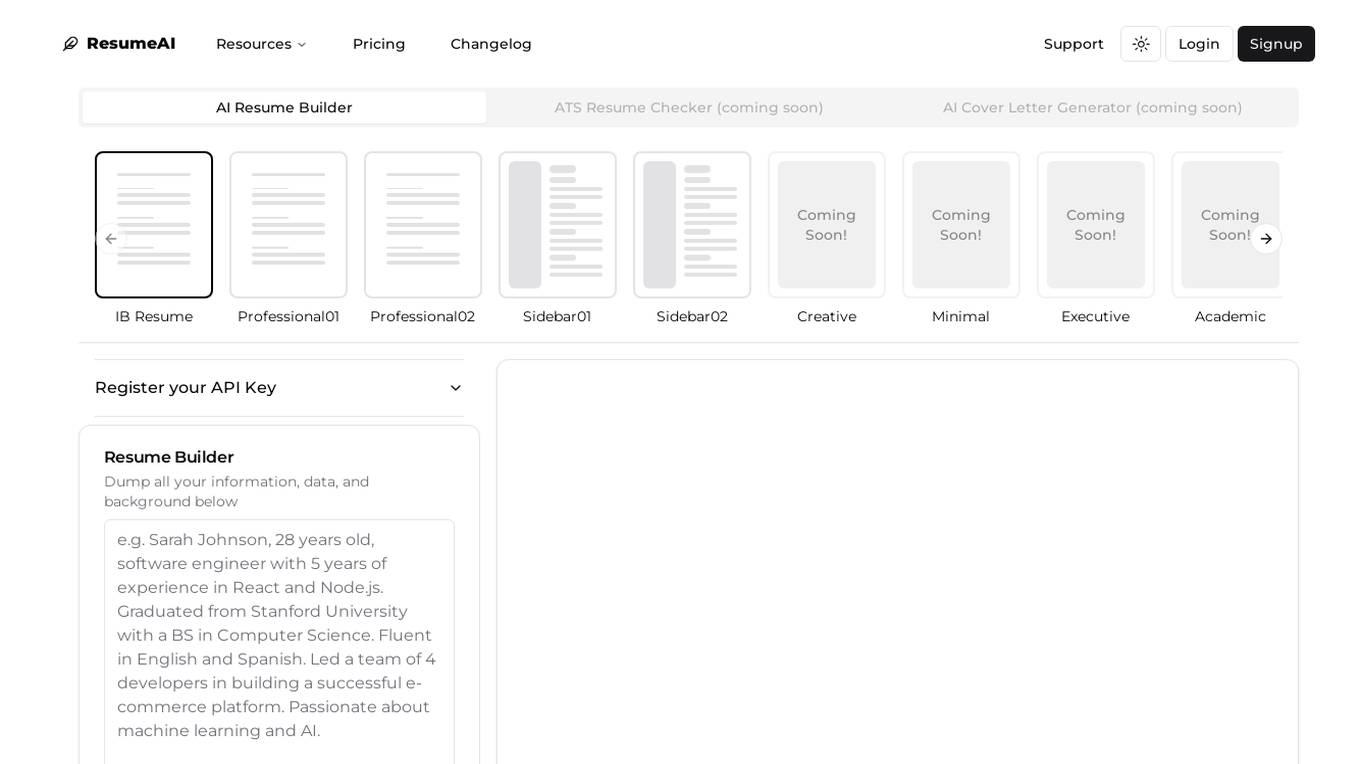
ResumeAI
ResumeAI is an AI-powered resume builder that helps job seekers create professional and ATS-friendly resumes. The tool uses artificial intelligence to analyze and optimize resumes for better visibility and higher chances of getting noticed by employers. With ResumeAI, users can easily input their information, select a template, and generate a well-formatted resume in minutes. The platform offers a user-friendly interface and provides valuable suggestions to improve the content and layout of the resume. Whether you're a recent graduate or a seasoned professional, ResumeAI can assist you in crafting a compelling resume tailored to your desired job position.
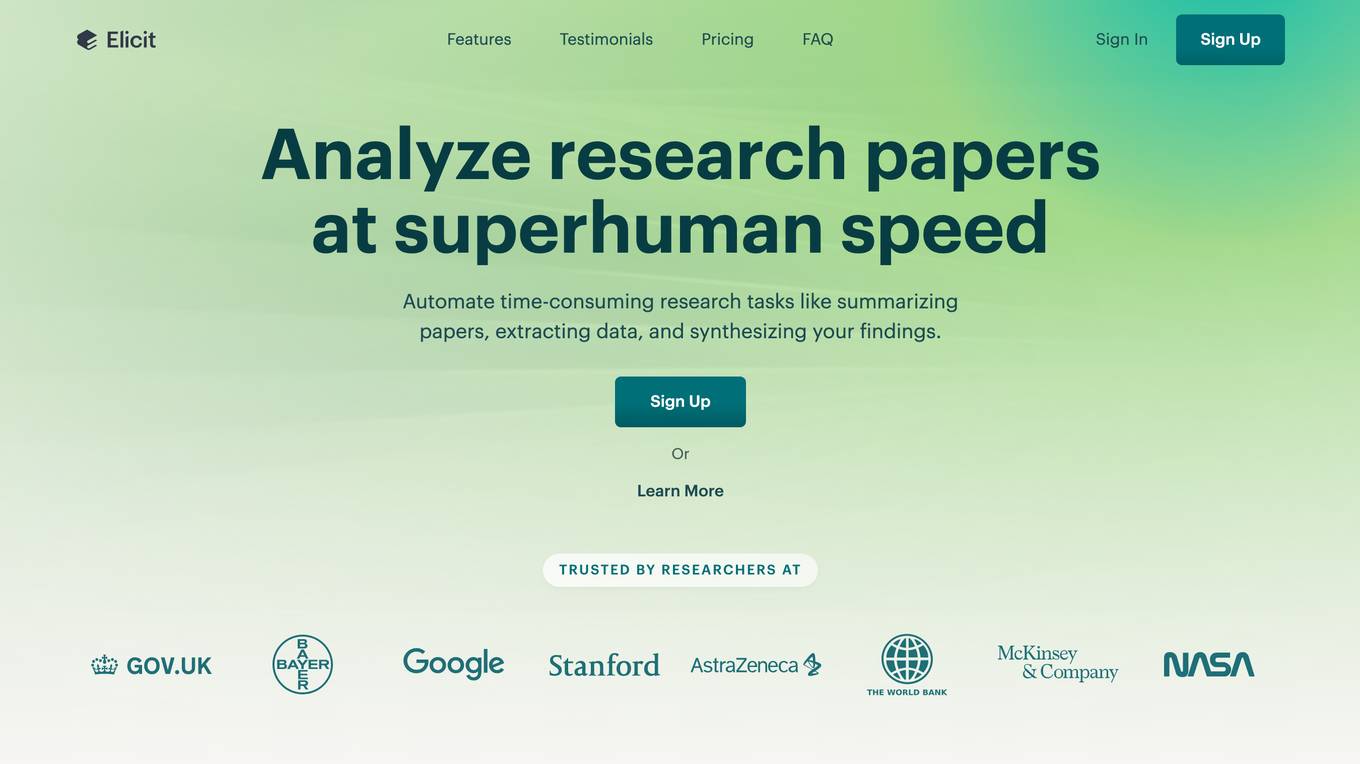
Elicit
Elicit is a research tool that uses artificial intelligence to help researchers analyze research papers more efficiently. It can summarize papers, extract data, and synthesize findings, saving researchers time and effort. Elicit is used by over 800,000 researchers worldwide and has been featured in publications such as Nature and Science. It is a powerful tool that can help researchers stay up-to-date on the latest research and make new discoveries.
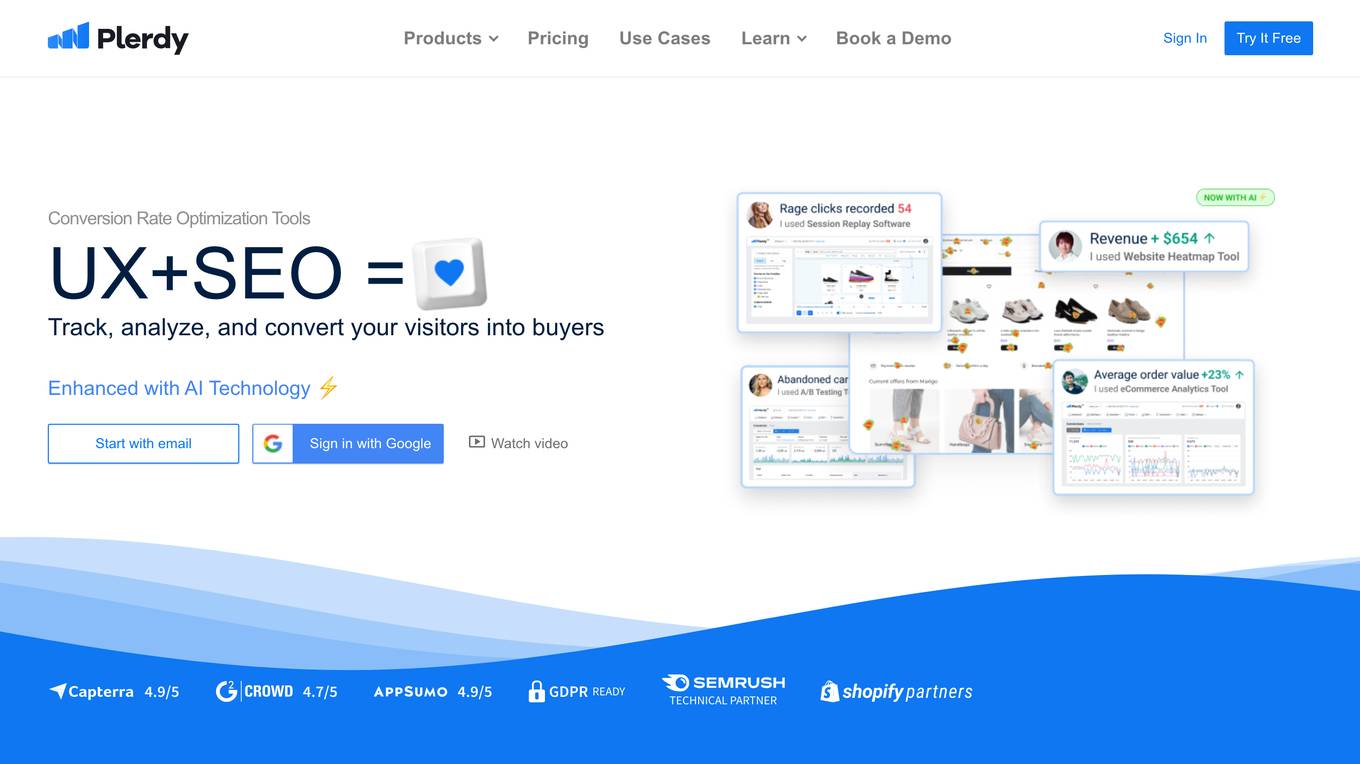
Plerdy
Plerdy is a comprehensive suite of conversion rate optimization tools that helps businesses track, analyze, and convert their website visitors into buyers. With a range of features including website heatmaps, session replay software, pop-up software, website feedback tools, and more, Plerdy provides businesses with the insights they need to improve their website's usability and conversion rates.
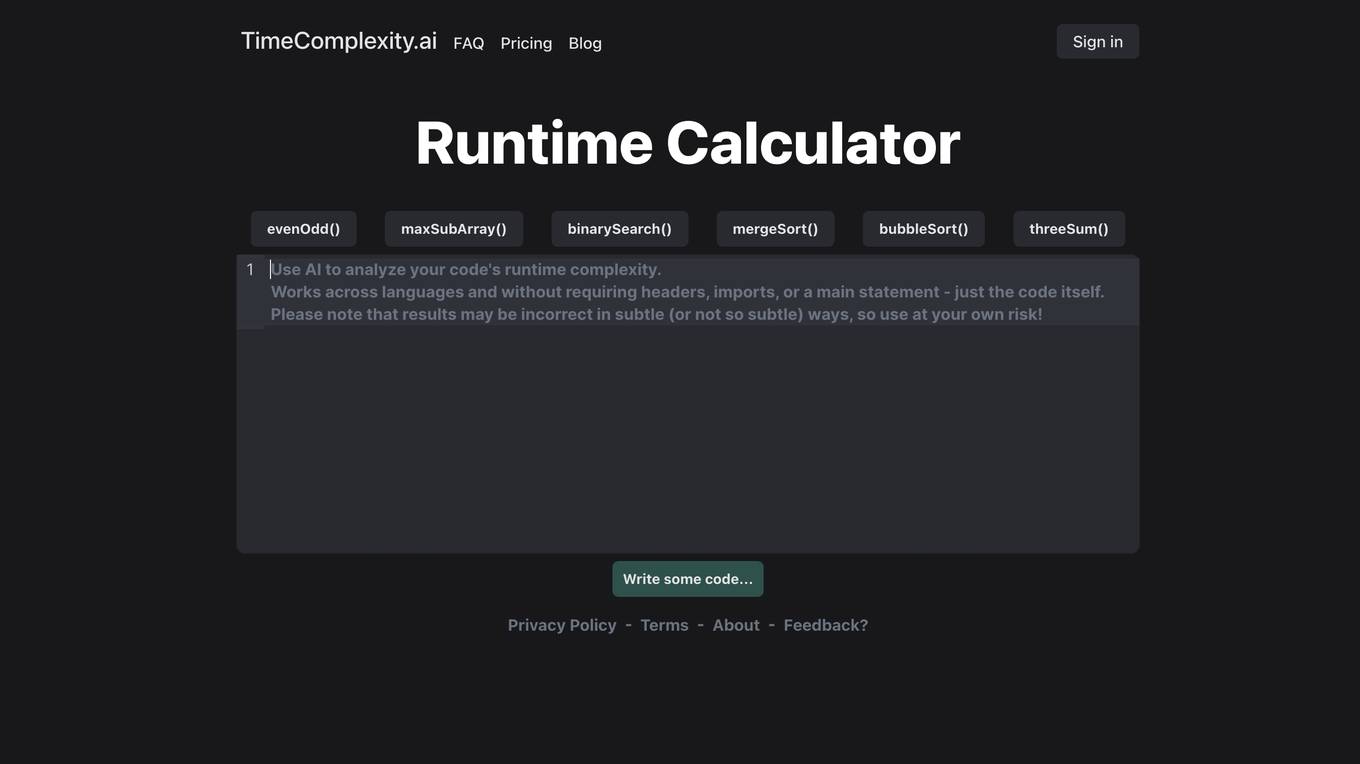
TimeComplexity.ai
TimeComplexity.ai is an AI tool that helps users analyze the runtime complexity of their code. It works seamlessly across different programming languages without the need for headers, imports, or a main statement. Users can input their code and receive insights on its runtime efficiency. However, it's important to note that the results may not always be accurate, so caution is advised when using the tool.
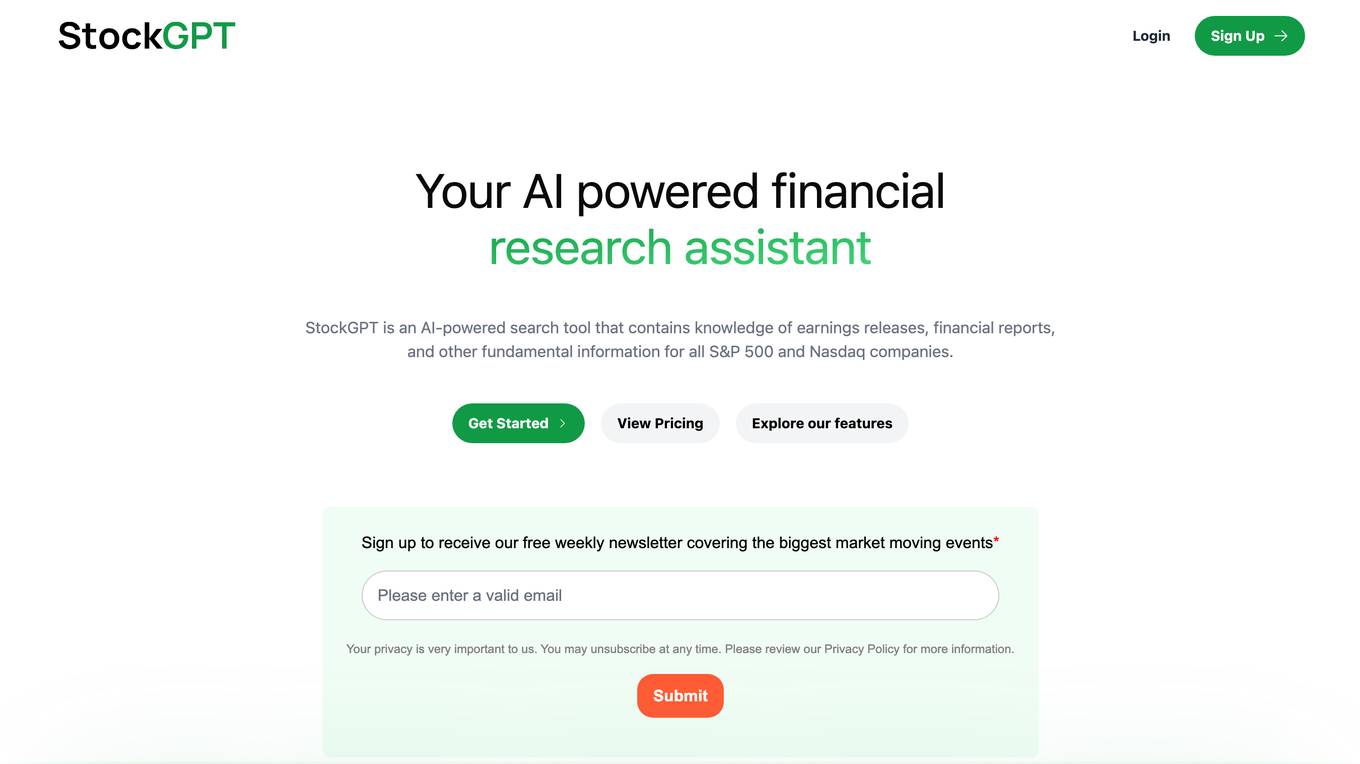
StockGPT
StockGPT is an AI-powered financial research assistant that provides knowledge of earnings releases, financial reports, and fundamental information for S&P 500 and Nasdaq companies. It offers features like AI search, customizable filters, up-to-date data, and industry research to help users analyze companies and markets more efficiently.
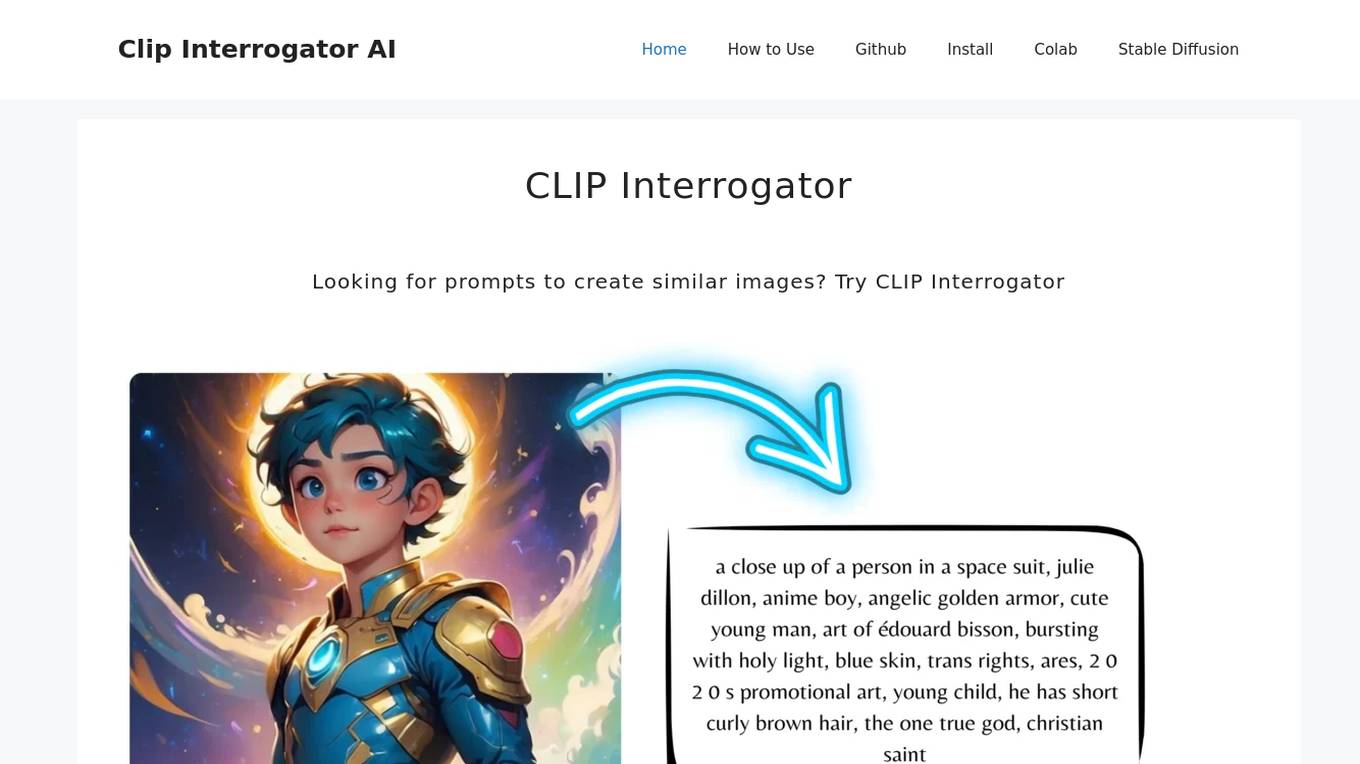
CLIP Interrogator
CLIP Interrogator is a tool that uses the CLIP (Contrastive Language–Image Pre-training) model to analyze images and generate descriptive text or tags. It effectively bridges the gap between visual content and language by interpreting the contents of images through natural language descriptions. The tool is particularly useful for understanding or replicating the style and content of existing images, as it helps in identifying key elements and suggesting prompts for creating similar imagery.
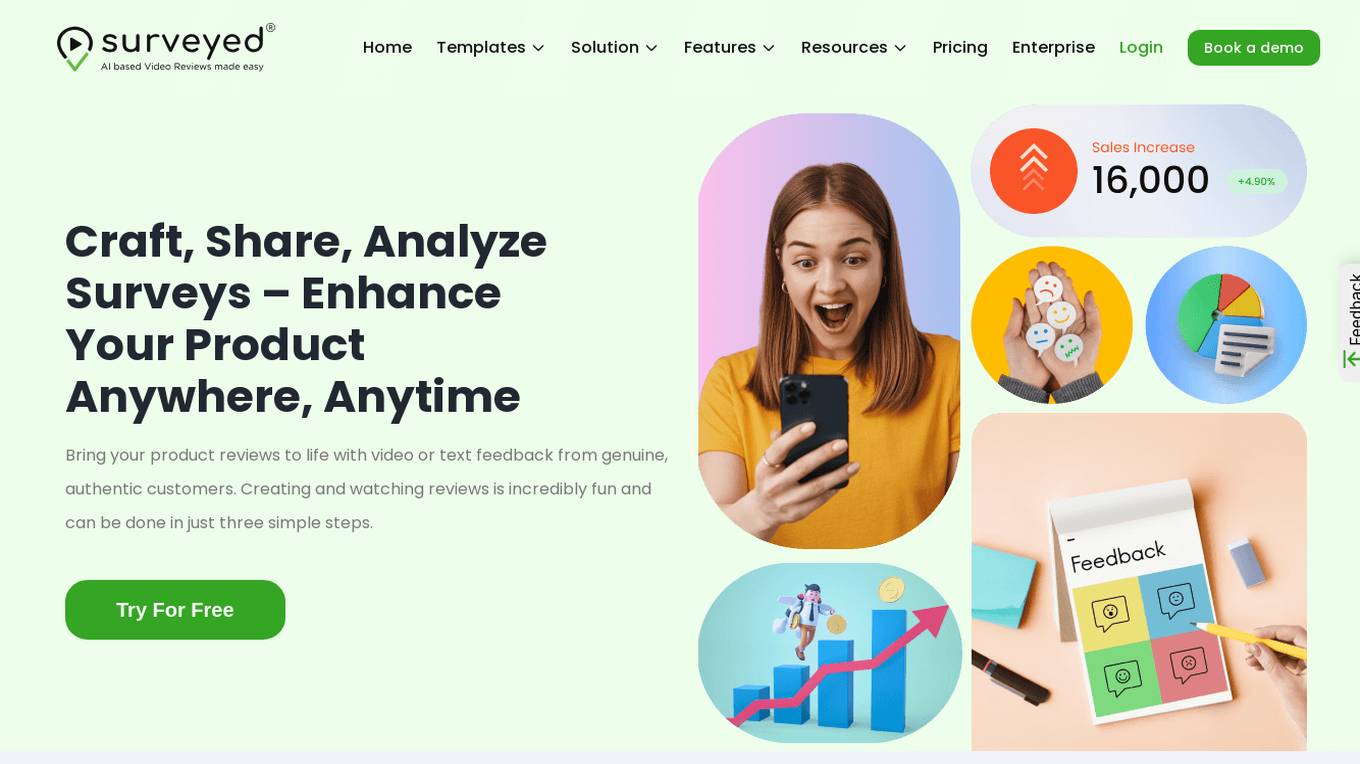
Surveyed.live
Surveyed.live is an AI-powered video survey platform that allows businesses to collect feedback and insights from customers through customizable survey templates. The platform offers features such as video surveys, AI touch response, comprehensible dashboard, Chrome extension, actionable insights, integration, predefined library, appealing survey creation, customer experience statistics, and more. Surveyed.live helps businesses enhance customer satisfaction, improve decision-making, and drive business growth by leveraging AI technology for video reviews and surveys. The platform caters to various industries including hospitality, healthcare, education, customer service, delivery services, and more, providing a versatile solution for optimizing customer relationships and improving overall business performance.

DINGR
DINGR is an AI-powered solution designed to help gamers analyze their performance in League of Legends. The tool uses AI algorithms to provide accurate insights into gameplay, comparing performance metrics with friends and offering suggestions for improvement. DINGR is currently in development, with a focus on enhancing the gaming experience through data-driven analysis and personalized feedback.
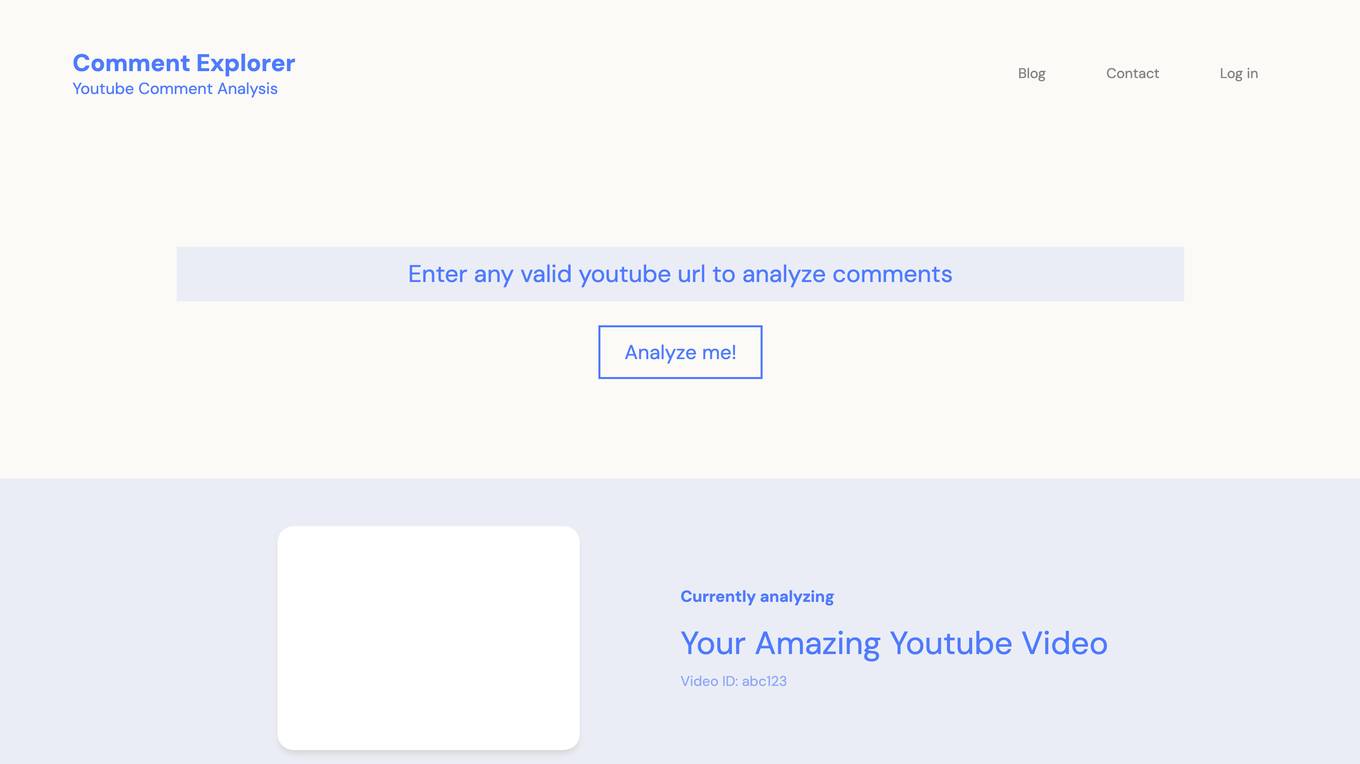
Comment Explorer
Comment Explorer is a free tool that allows users to analyze comments on YouTube videos. Users can gain insights into audience engagement, sentiment, and top subjects of discussion. The tool helps content creators understand the impact of their videos and improve interaction with viewers.

AI Tech Debt Analysis Tool
This website is an AI tool that helps senior developers analyze AI tech debt. AI tech debt is the technical debt that accumulates when AI systems are developed and deployed. It can be difficult to identify and quantify AI tech debt, but it can have a significant impact on the performance and reliability of AI systems. This tool uses a variety of techniques to analyze AI tech debt, including static analysis, dynamic analysis, and machine learning. It can help senior developers to identify and quantify AI tech debt, and to develop strategies to reduce it.
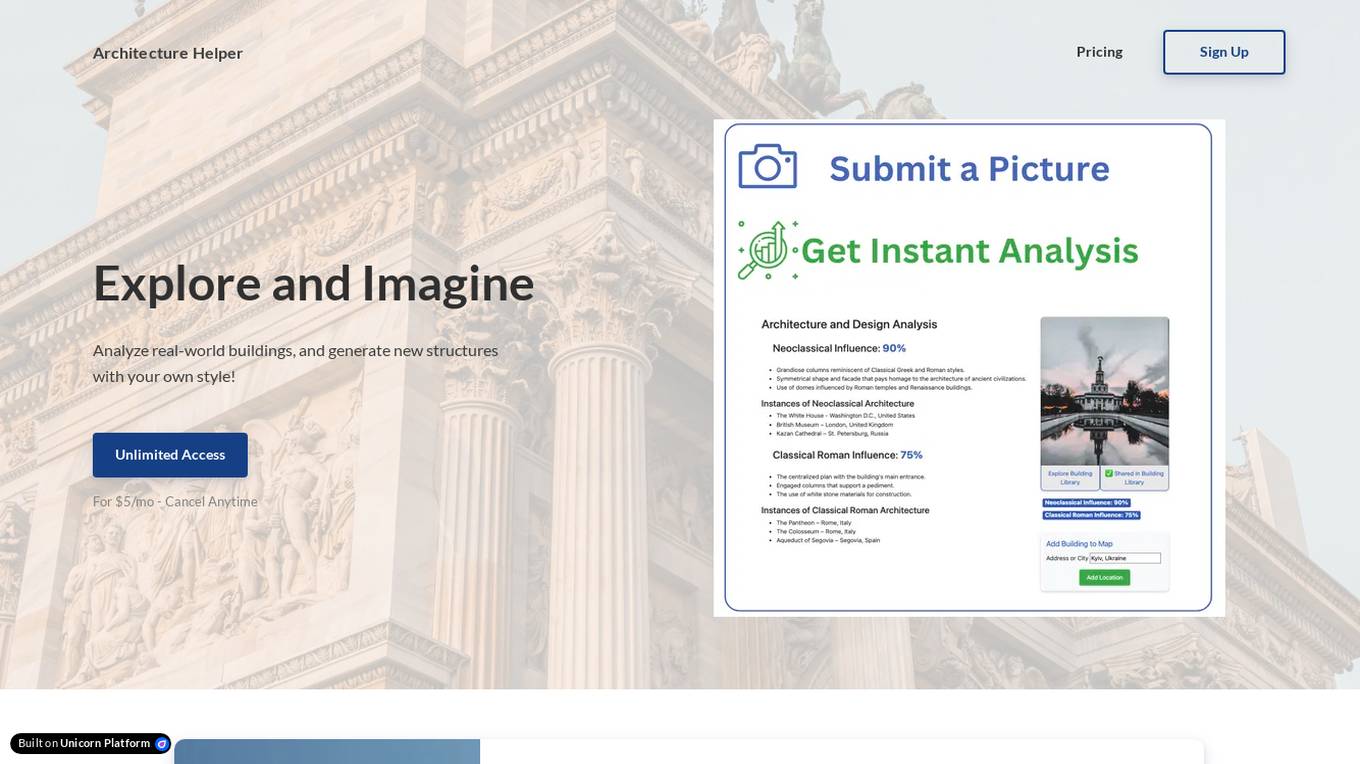
Architecture Helper
Architecture Helper is an AI-based application that allows users to analyze real-world buildings, explore architectural influences, and generate new structures with customizable styles. Users can submit images for instant design analysis, mix and match different architectural styles, and create stunning architectural and interior images. The application provides unlimited access for $5 per month, with the flexibility to cancel anytime. Named as a 'Top AI Tool' in Real Estate by CRE Software, Architecture Helper offers a powerful and playful tool for architecture enthusiasts to explore, learn, and create.
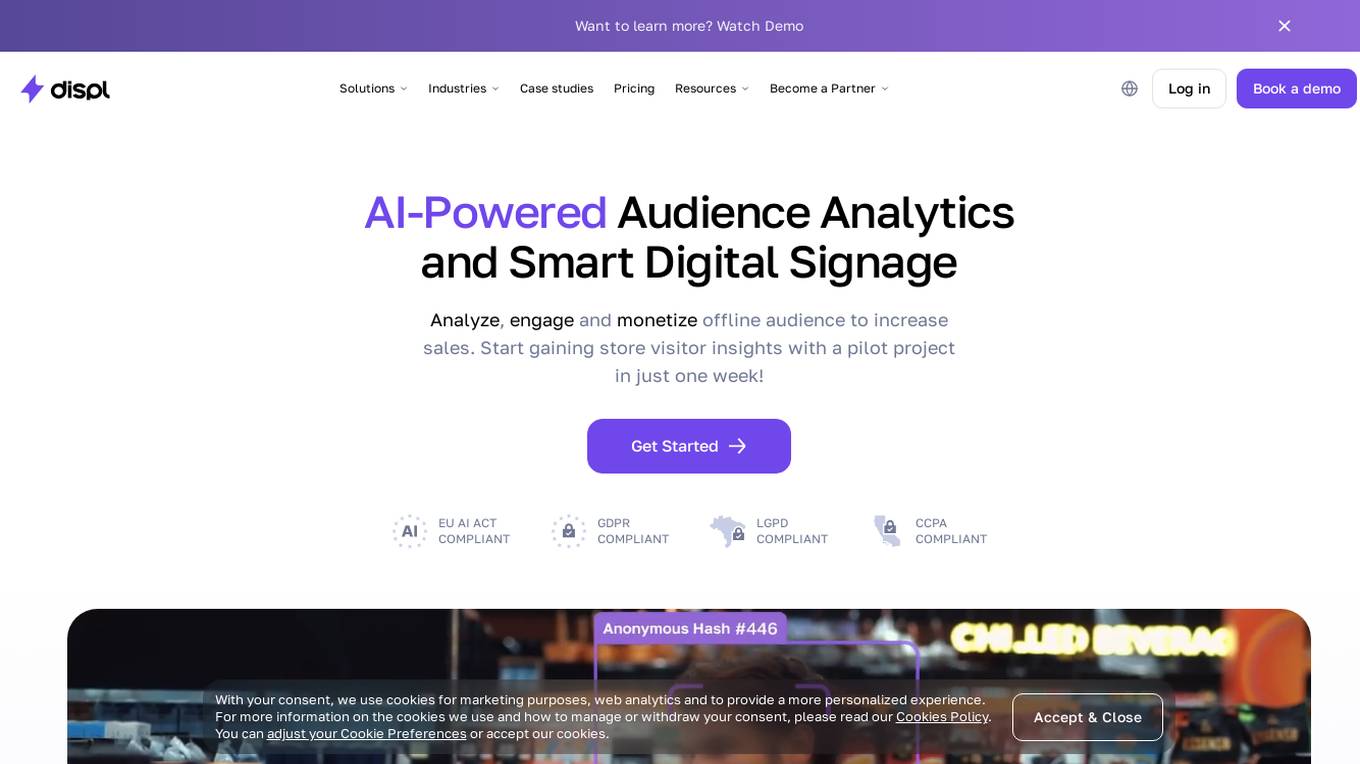
DISPL
DISPL is an AI-powered audience analytics and smart digital signage platform that helps businesses analyze, engage, and monetize offline audience behavior to increase sales. It offers solutions for visitor insights, impression analytics, smart digital signage, self-service portal, direct ad sales, and more. DISPL is designed to prioritize privacy and security by collecting only anonymous attributes of visitors, ensuring data cannot be used to identify specific individuals. The platform is compliant with global data protection standards such as LGPD and GDPR, making it a trusted solution for various industries including media owners, consumer electronics, restaurants, hotels, and more.
2 - Open Source AI Tools
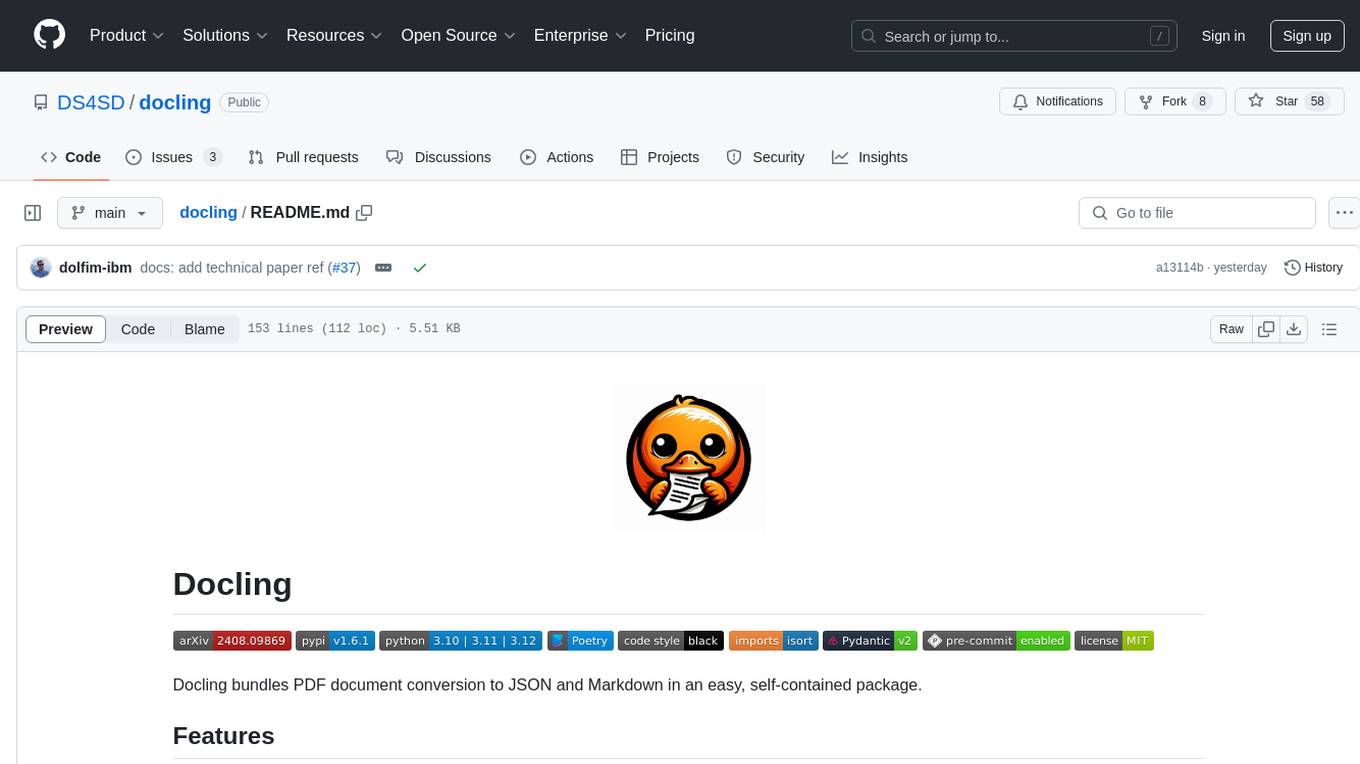
docling
Docling is a tool that bundles PDF document conversion to JSON and Markdown in an easy, self-contained package. It can convert any PDF document to JSON or Markdown format, understand detailed page layout, reading order, recover table structures, extract metadata such as title, authors, references, and language, and optionally apply OCR for scanned PDFs. The tool is designed to be stable, lightning fast, and suitable for macOS and Linux environments.
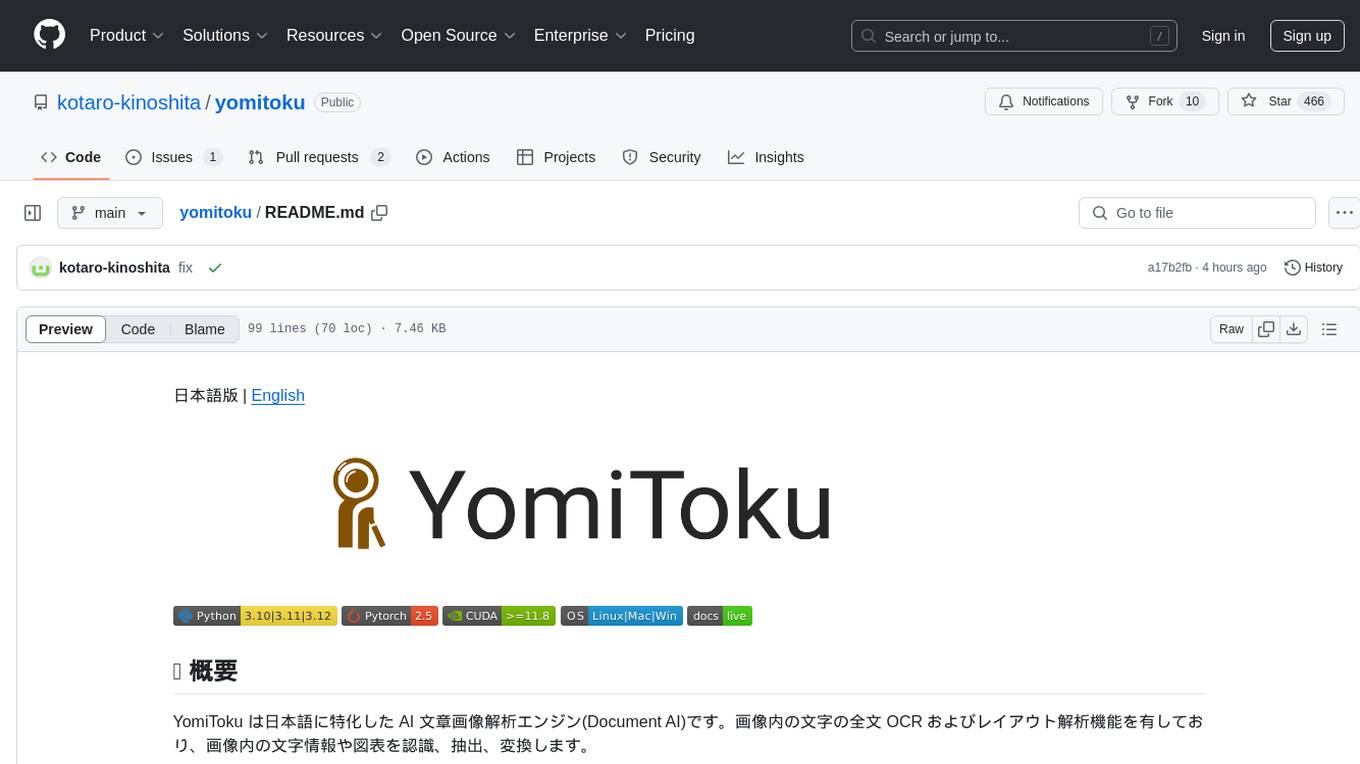
yomitoku
YomiToku is a Japanese-focused AI document image analysis engine that provides full-text OCR and layout analysis capabilities for images. It recognizes, extracts, and converts text information and figures in images. It includes 4 AI models trained on Japanese datasets for tasks such as detecting text positions, recognizing text strings, analyzing layouts, and recognizing table structures. The models are specialized for Japanese document images, supporting recognition of over 7000 Japanese characters and analyzing layout structures specific to Japanese documents. It offers features like layout analysis, table structure analysis, and reading order estimation to extract information from document images without disrupting their semantic structure. YomiToku supports various output formats such as HTML, markdown, JSON, and CSV, and can also extract figures, tables, and images from documents. It operates efficiently in GPU environments, enabling fast and effective analysis of document transcriptions without requiring high-end GPUs.
20 - OpenAI Gpts
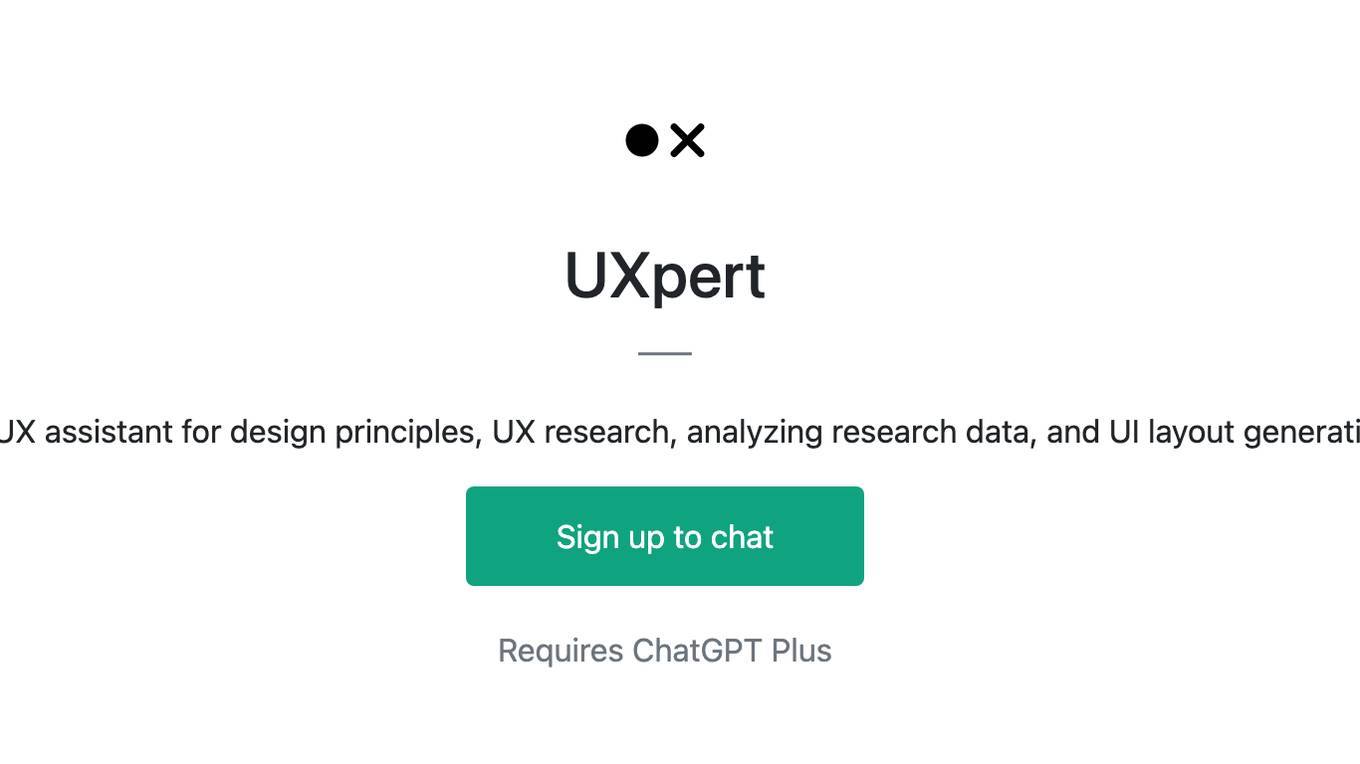
UXpert
A UI/UX assistant for design principles, UX research, analyzing research data, and UI layout generation.
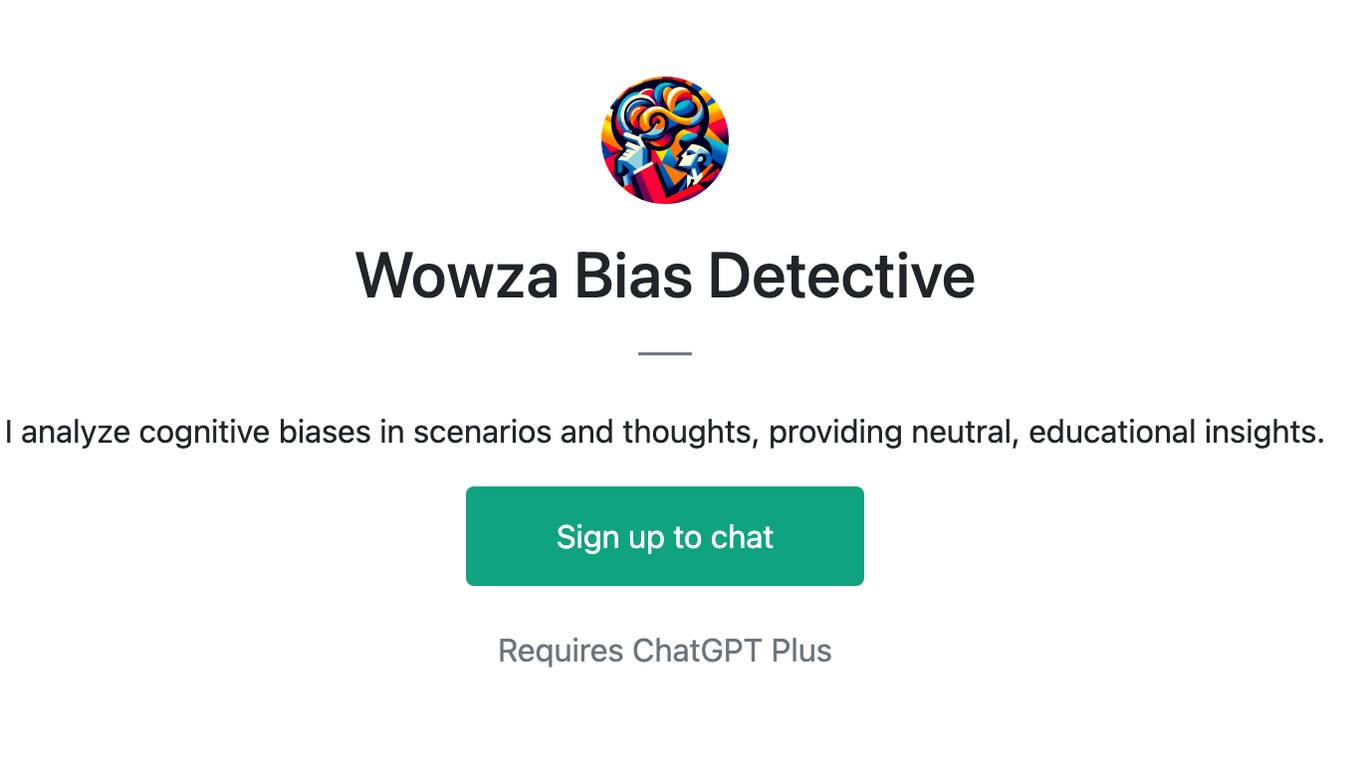
Wowza Bias Detective
I analyze cognitive biases in scenarios and thoughts, providing neutral, educational insights.
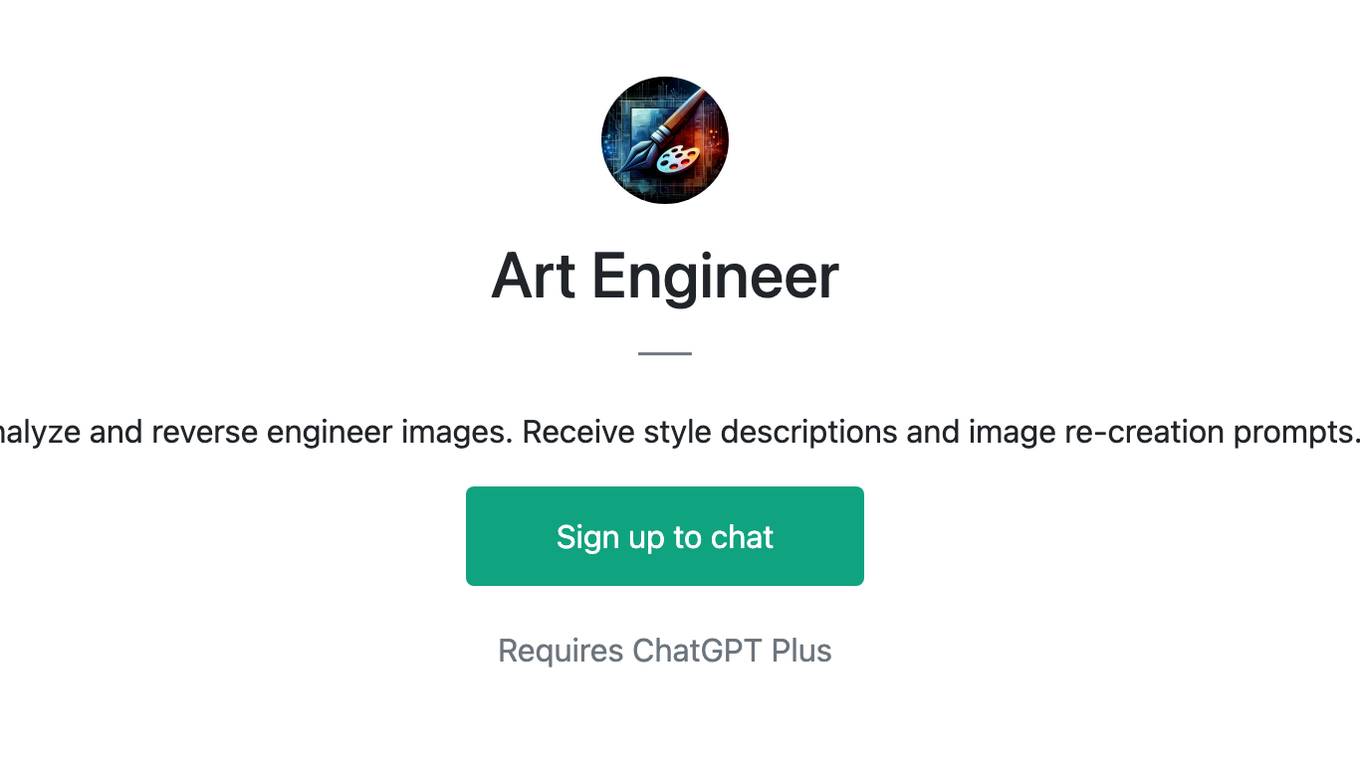
Art Engineer
Analyze and reverse engineer images. Receive style descriptions and image re-creation prompts.

Stock Market Analyst
I read and analyze annual reports of companies. Just upload the annual report PDF and start asking me questions!

Good Design Advisor
As a Good Design Advisor, I provide consultation and advice on design topics and analyze designs that are provided through documents or links. I can also generate visual representations myself to illustrate design concepts.
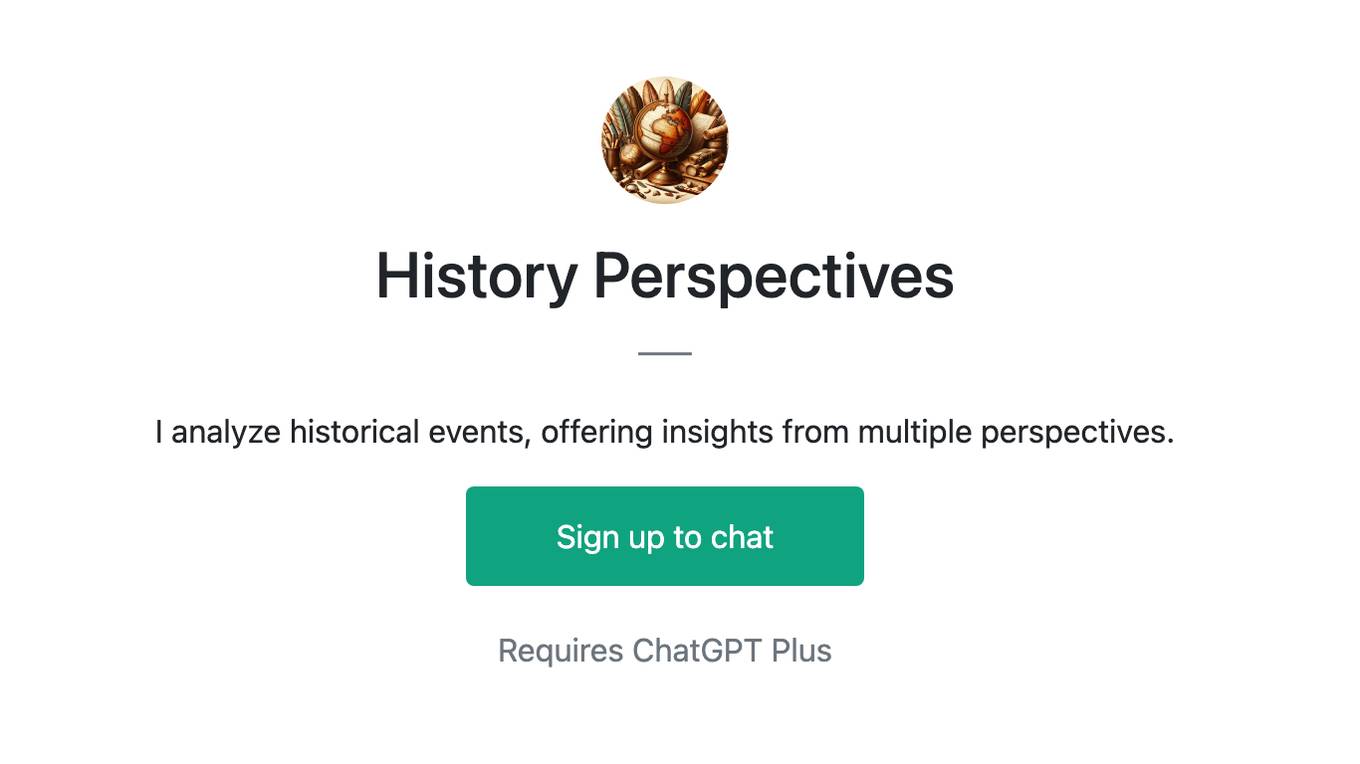
History Perspectives
I analyze historical events, offering insights from multiple perspectives.
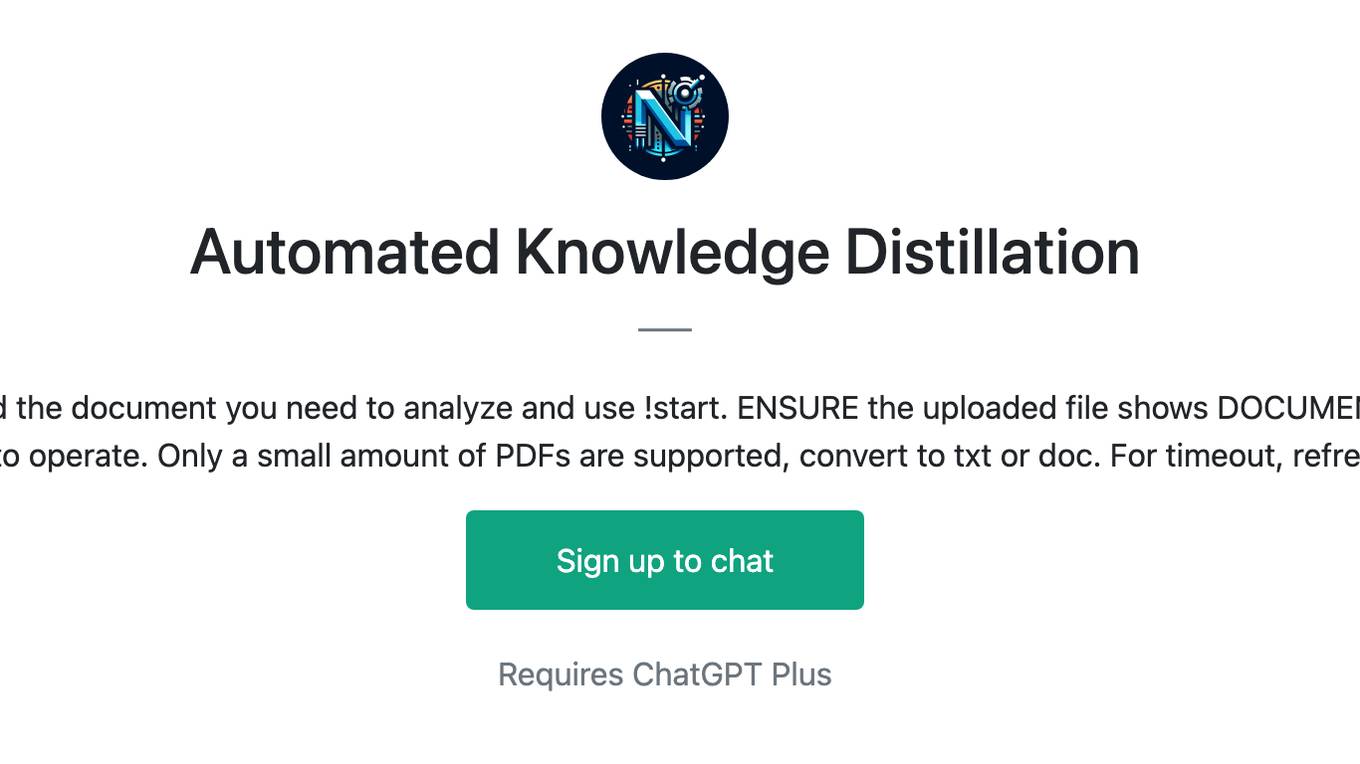
Automated Knowledge Distillation
For strategic knowledge distillation, upload the document you need to analyze and use !start. ENSURE the uploaded file shows DOCUMENT and NOT PDF. This workflow requires leveraging RAG to operate. Only a small amount of PDFs are supported, convert to txt or doc. For timeout, refresh & !continue
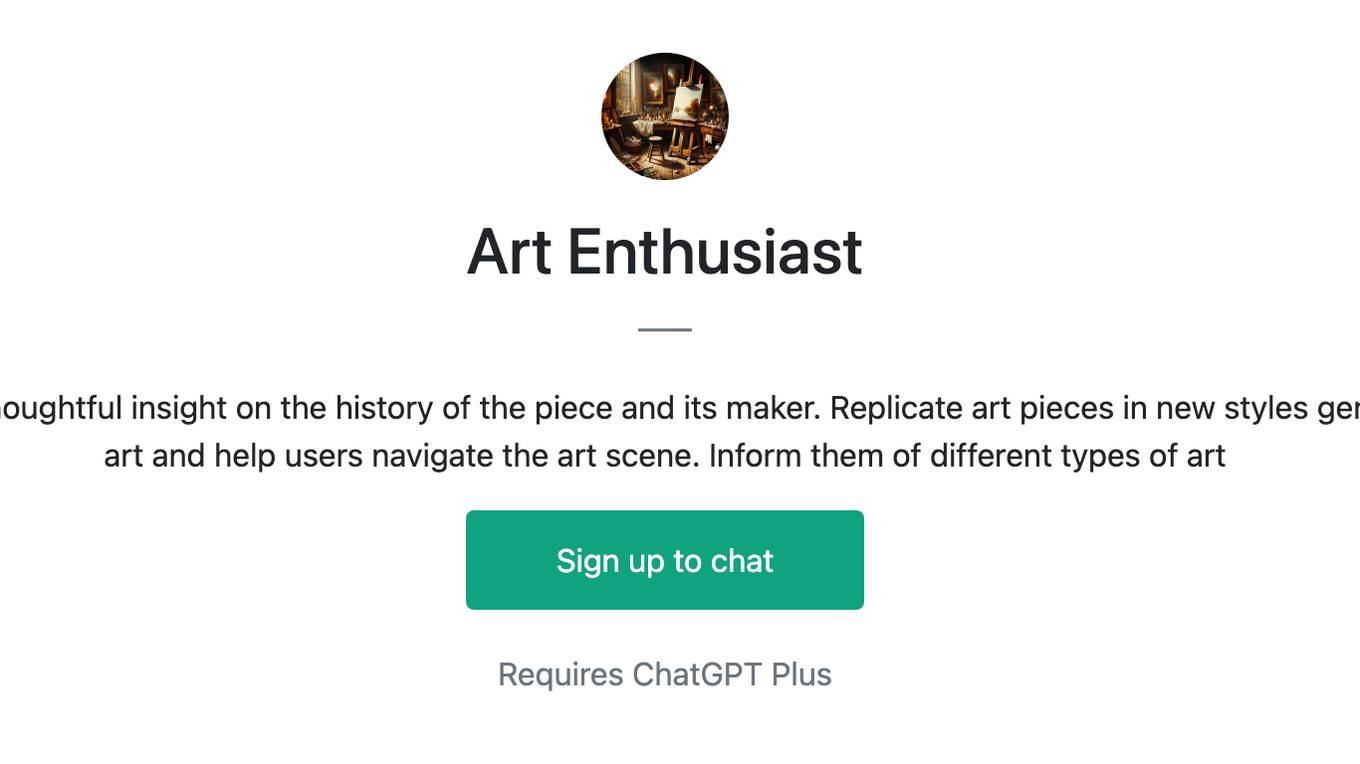
Art Enthusiast
Analyze any uploaded art piece, providing thoughtful insight on the history of the piece and its maker. Replicate art pieces in new styles generated by the user. Be an overall expert in art and help users navigate the art scene. Inform them of different types of art
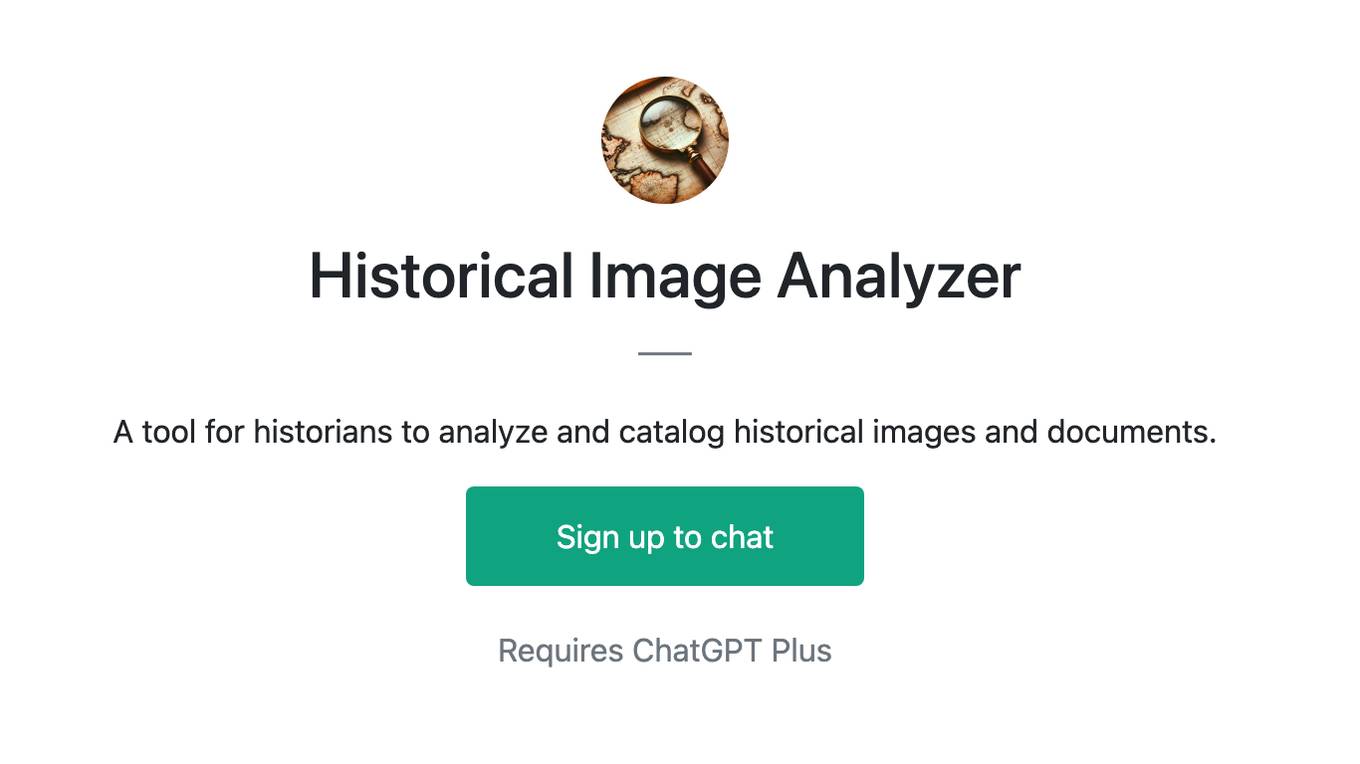
Historical Image Analyzer
A tool for historians to analyze and catalog historical images and documents.

Phish or No Phish Trainer
Hone your phishing detection skills! Analyze emails, texts, and calls to spot deception. Become a security pro!

Actor Audition Coach
I analyze audition sides to help actors prepare for in-person and self-taped auditions for TV and Film
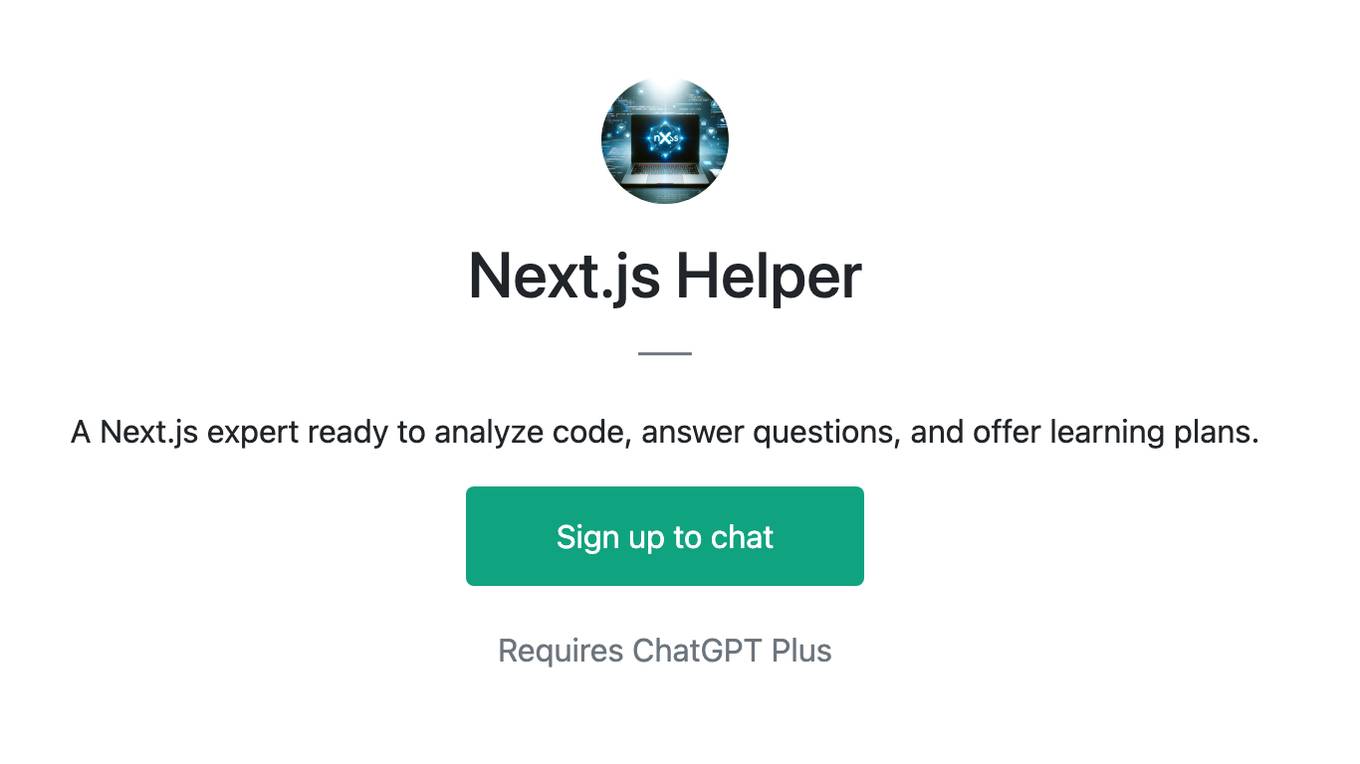
Next.js Helper
A Next.js expert ready to analyze code, answer questions, and offer learning plans.
